
CONNECTING TRADE PROFESSIONALS WITH INDUSTRY INTELLIGENCE INTERVIEW
SOLUTIONS
KSA’s Holistic Logistic Provider
Maximizing Logistics Performance
BRIDGING BORDERS
Sanjeev Dutta, CEO of the UAE-India Business Council - UAE Chapter, unveils the blueprint for UAE-India trade boost
INNOVATION
Coming To A Full Circle
2024
APRIL










































































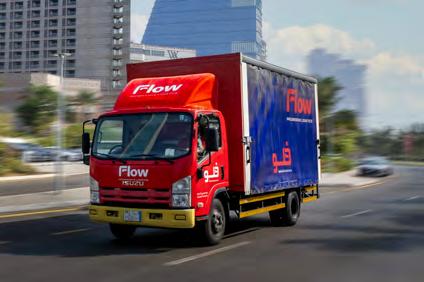
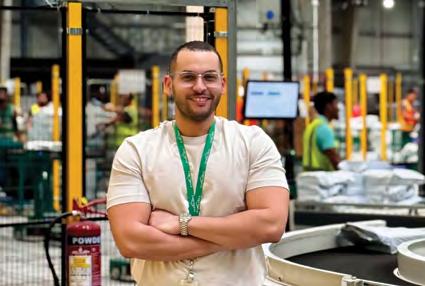
IN THIS ISSUE COVER STORY 27 INTERVIEW KSA’S HOLISTIC LOGISTICS PROVIDER 29 SOLUTIONS MAXIMIZING LOGISTICS PERFORMANCE 38 SOLUTIONS UNLOCKING SUCCESS 42 INNOVATION COMING TO A FULL CIRCLE 16 REPORTS DHL CONNECTEDNESS REPORT 2024:UAE RANKS TOP 10 IN GLOBAL CONNECTIVITY 18 TALKING POINT THE MUSTS 20 EXPERT INSIGHT ONLINE RETURNS IN A SUSTAINABLE WORLD 22 LAST-MILE STREAMLINED FINAL DELIVERIES 48 INTERVIEW SEALING RIFTS 42 SUPPLY CHAIN DECODING FOOD TRADE LOGISTICS BRIDGING BORDERS 24 38 48 LOGISTICS NEWS ME | APRIL 2024 | 3
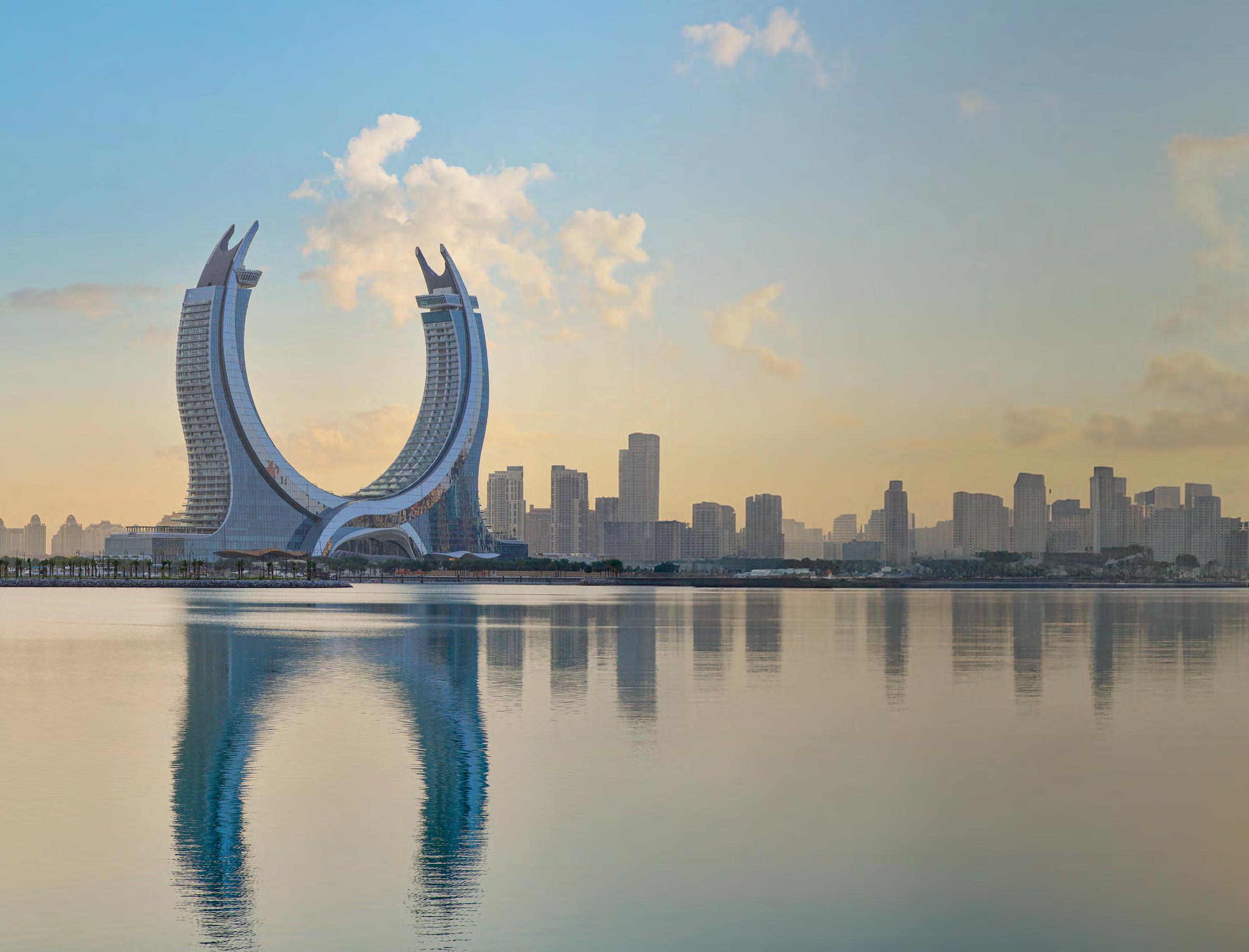
Nestled by the coast of Lusail sits the splendor of Raf es and Fairmont Doha, where luxury is rooted in even the smallest details. Open the doors to mesmerizing hospitality and make memories in a world of sophistication.

CONNECTING TRADE PROFESSIONALS WITH INDUSTRY INTELLIGENCE
CONNECTING TRADE PROFESSIONALS WITH INDUSTRY INTELLIGENCE
CEO
Wissam Younane wissam@bncpublishing.net
Director
CEO
Rabih Najm rabih@bncpublishing.net
Wissam Younane wissam@bncpublishing.net
Group Publishing Director
Director
Joaquim D’Costa jo@bncpublishing.net
Rabih Najm rabih@bncpublishing.net
Editor-in-Chief
Group Publishing Director
Vibha Mehta vibha@bncpublishing.net
Joaquim D'Costa jo@bncpublishing.net
Sales Manager
Editor-in-Chief
Alex Brown alex@bncpublishing.net
Vibha Mehta vibha@bncpublishing.net
Editorial Assistant
Managing Editor
Aya Zhang aya@bncpublishing.net
Kasun Illankoon kasun@bncpublishing.net
Creative Lead
Design
Christian Harb chriss@bncpublishing.net
Christian Harb
Editorial Design
Marketing Executive
Rizaldi Febrian
Aaron Joshua Sinanbam aj@bncpublishing.net
Marketing Executive
Digital Media Producer
Aaron Joshua Sinanbam aj@bncpublishing.net
Alexander Bungas
Videographer
Alexander Bungas
SUBSCRIBE subscriptions@bncpublishing.net
SUBSCRIBE subscriptions@bncpublishing.net
PO Box 502511 Dubai, United Arab Emirates P +971 4 4200 506 | F +971 4 4200 196
For all commercial enquiries, contact jo@bncpublishing.net T +971 50 440 2706

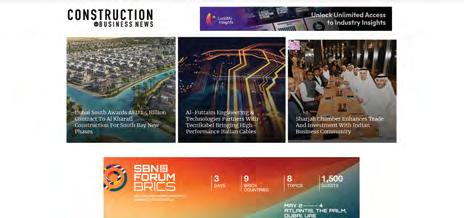


News ME. No part of this magazine may be reproduced or transmitted in any form or by any means without written permission of the publisher. Printed by United Printing and Publishing | upp.ae
FRESH CONTENT DAILY ON OUR WEBSITE! Logistics News ME @Logisticsnewsme Logistics News ME
addition to our print edition, we’re bringing you all sorts of industry news on our web mediums. We’re looking forward to interacting with our readers on all of our social media and web platforms. See you on the web!
All rights reserved © 2023. Opinions expressed are solely those of the contributors. Logistics News ME and all subsidiary publications in the MENA region are officially licensed exclusively to BNC Publishing in the MENA region by Logistics
Images used in Logistics News ME are credited when necessary. Attributed use of copyrighted images with permission. All images not credited courtesy Shutterstock. cbnme.com ACCESS
In
6 | LOGISTICS NEWS ME | JULY 2023 WWW.CBNME.COM
PO Box 502511 Dubai, United Arab Emirates P +971 4 4200 506 | F +971 4 4200 196 For all commercial enquiries, contact jo@bncpublishing.net T +971 50 440 2706 All rights reserved © 2023. Opinions expressed are solely those of the contributors. Logistics News ME and all subsidiary publications in the MENA region are o cially licensed exclusively to BNC Publishing in the MENA region by Logistics News ME. No part of this magazine may be reproduced or transmitted in any form or by any means without written permission of the publisher. Printed by United Printing and Publishing | upp.ae Images used in Logistics News ME are credited when necessary. Attributed use of copyrighted images with permission. All images not credited courtesy Shutterstock. cbnme.com ACCESS FRESH CONTENT DAILY ON OUR WEBSITE! Logistics News ME @Logisticsnewsme Logistics News ME logistcsnewsme addition to our we’re bringing you all sorts of industry news on our web mediums. We’re looking forward to interacting with our readers on all of our social media and web platforms. See you on the web!
6 | LOGISTICS NEWS ME | APRIL 2024 WWW.CBNME.COM
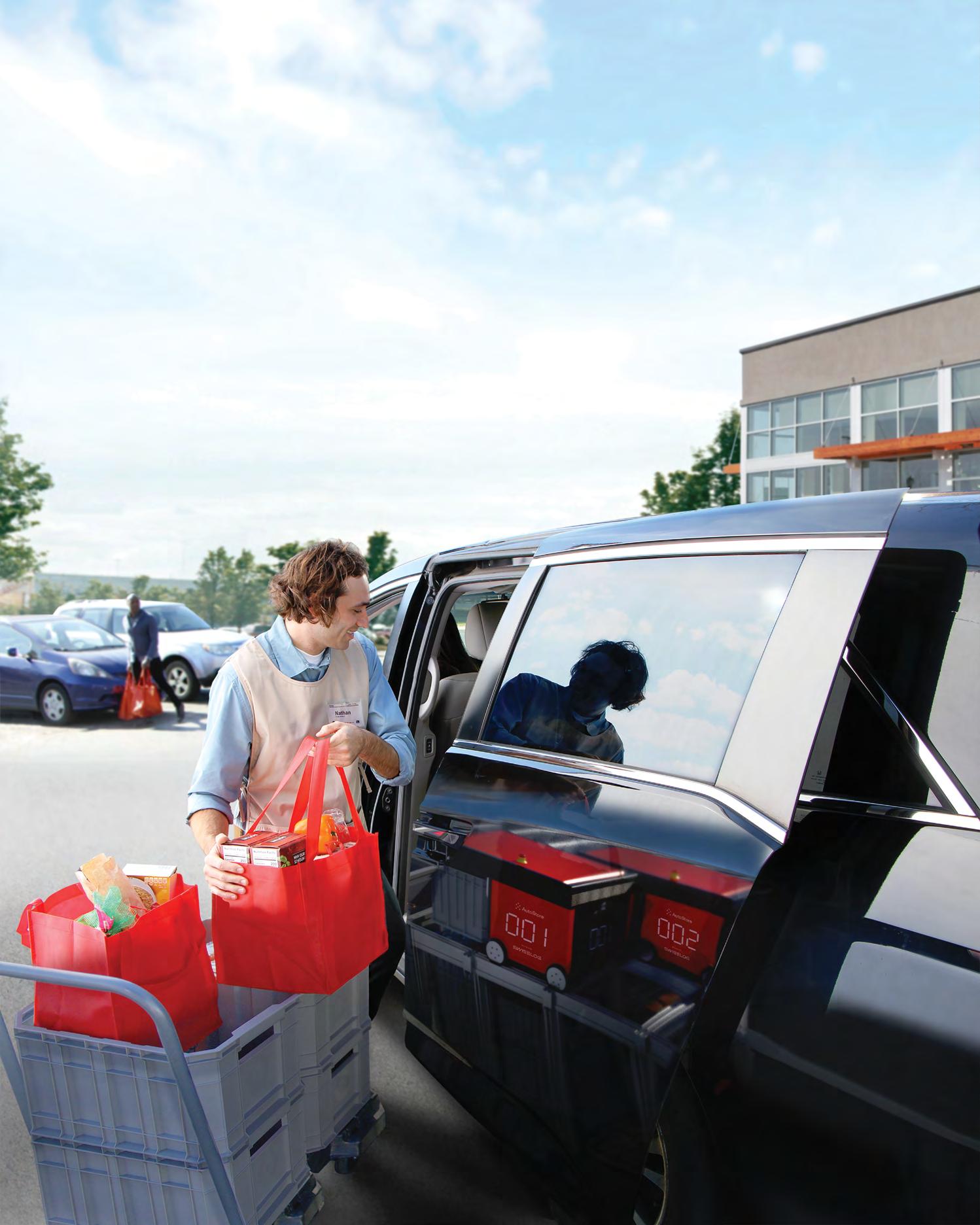
EMOTIONAL DISPLAY

What are emotions? While the Google definition describes them as "a strong feeling deriving from one's mood, circumstances, and relationships," the reality of emotions goes deeper. People often advise to "keep your emotions in check," "not overreact," or ask, "Are you feeling better?" because emotions are the body's response to processing information that doesn't align with desired outcomes.
An individual's demeanour or a particular deed can deeply unsettle them or evoke an inner sense of contentment that radiates through their expression. But how does one effectively manage these emotions? While numerous books may offer various recommendations, their efficacy is still being determined. Personally, I've endeavoured to introspect on my own emotions to understand why I become more agitated. Could it be that other underlying feelings are influencing my behaviour? Similarly to others, while browsing social media, I've encountered numerous informative videos on maintaining calmness and patience to regulate emotions. Some individuals make it seem effortless to believe everything is within your control. However, I beg to differ. Yes, certain things can be managed if I refuse to let them affect me, but ultimately, I'm only human with a plethora of emotions. Hence, perhaps I can diminish them, but altogether abandoning them is not feasible. There could be a follow-up on my emotional journey in the upcoming month. Currently, feel free to explore this month's edition, where Logistics News Middle East explores the recent advancements influencing the logistics sector in the region. From cutting-edge technologies to ecofriendly initiatives, our goal is to offer you in-depth insights into the ever-evolving logistics arena.

EDITOR’S NOTE LNME
Vibha Mehta Editor-in-Chief vibha@bncpublishing.net Vibha Mehta vibhamehta01 @vibhamehta01 8 | LOGISTICS NEWS ME | APRIL 2024 WWW.CBNME.COM

The Arocs. Your Reliable Partner for Every Construction Transportation Task.
Regardless of whether it is a rigid chassis, concrete mixer or heavy-duty tipper: The Mercedes-Benz Arocs provides an especially robust, resilient vehicle that is optimally prepared for use for any construction haulage challenge. Configure it now to suit your requirements and those of your project.


SUITE TREAT
Step into a world of opulence when you book a Suite at Raffles Doha.
Experience the added luxury of QAR 750 credit to spend on dining in the hotel, and QAR 500 towards any Spa treatment.
Children aged 12 and below are welcome to indulge in the enchantment of complimentary dining.
Rates starting from QAR 3,500 per night
For reservations, please call +974 4030 7100 or email reservations.doha@raffles.com

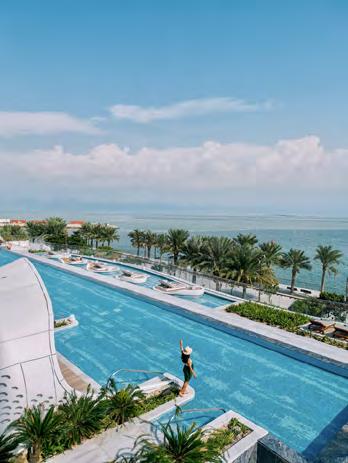
Raffles Doha, Iconic Towers, Marina District, PO BOX 4747, Lusail, Qatar
KEZAD ASSETS MANAGEMENT TO OVERSEE 750,000 SQM ASSETS
KEZAD Group, a subsidiary of AD Ports Group under the Economic Cities & Free Zones and the largest operator of integrated and purpose-built economic zones in the UAE, is set to transfer the management of approximately 750,000 square metres of its built-up assets to KEZAD Assets Management Company (KAMC). This will make it a key player in the industrial and logistics assets sector through strategic acquisitions, management, and operations.
KAMC was announced in October 2022 by KEZAD Group to focus on managing its existing built-up assets. KEZAD Group currently has approximately 500,000 sqm of built-up assets, and another 250,000 sqm is scheduled to be delivered by 2025.
The company will also acquire, maintain, and operate a portfolio of high-quality industrial and logistics assets, implementing asset-level value creation and preservation strategies.
Abdullah Al Hameli, CEO of Economic Cities & Free Zones, AD Ports Group, said: “The establishment of KEZAD Assets Management Company is a pivotal step in our strategic expansion. Through this new venture,
we are fostering a dynamic ecosystem of growth and innovation in the industrial and logistics sectors. ”
“KAMC is uniquely positioned to drive sustainable value and contribute significantly to the economic diversification of Abu Dhabi and the wider region.”
Mohamed Al Khader Al Ahmed, CEO of Khalifa Economic Zones Abu Dhabi – KEZAD Group, added: “The launch of KEZAD Assets Management Company marks a new era for KEZAD Group, aligning with our vision to be a world-class industrial and logistics hub.”
“This strategic step enhances our competitive edge, provides unparalleled services to our clients, and further solidifies our role as a key driver of the region’s industrial growth and prosperity in Abu Dhabi.”
The company will leverage global networking, client and broker relationships, and risk management for effective operation. The structure of KAMC includes functions such as Deal Sourcing & Management, Leasing & Property Management Oversight, Joint Ventures & Limited Partnerships, and Risk Management, leveraging the expertise within the existing units of EC&FZ / KEZAD Group for efficient operation.

REGIONAL NEWS LNME
12 | LOGISTICS NEWS ME | APRIL 2024 WWW.CBNME.COM
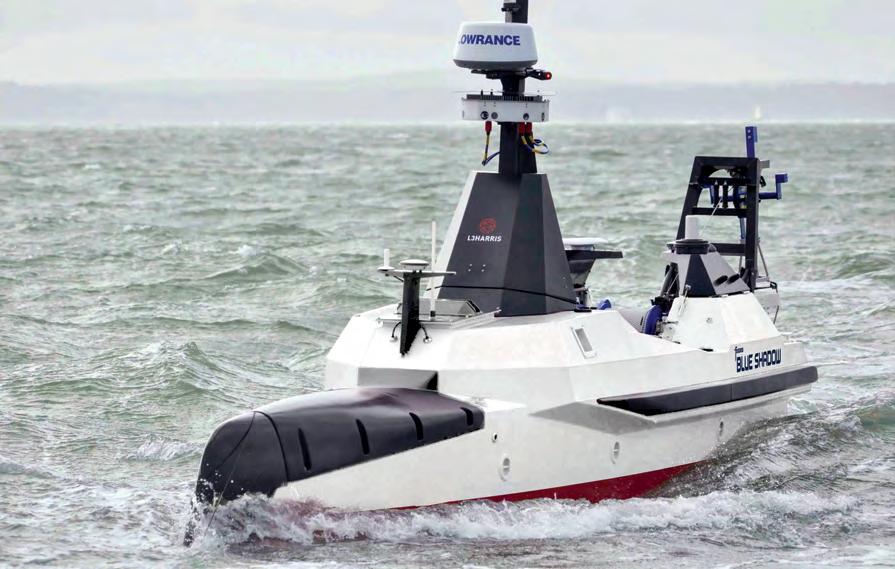
FUGRO’S HIGH-TECH, LOW-EMISSIONS VESSELS AID MIDDLE EAST OCEAN DATA
Following the successful launch of the Middle East’s first fully remote survey vessel in 2022, leading Geodata specialist Fugro has announced the arrival of its Blue Shadow® class uncrewed surface vessel (USV), in the Middle East. Crafted for precise hydrographic mapping and bathymetry surveys, the Blue Shadow® will play a crucial role in addressing the rising demand for accurate hydrographic data in the Middle East, where infrastructure development, port expansion, and coastal management initiatives are at an all-time high.
Utilising state-of-the-art navigation and surveying technology, the Blue Shadow® efficiently collects vital data such as water depth and
seafloor morphology, supporting the development of the blue economy in the Middle East while also aiding in understanding and protecting the delicate marine ecosystem. This advanced technology enables nondisruptive hydrographic surveys near existing offshore structures, resulting in efficient hydrographic surveys, reducing project timelines and providing crucial speed and accuracy in the dynamic maritime environment of the region.
With an ambitious goal to achieve net-zero emissions by 2035, Fugro is taking significant strides in minimising its environmental impact by including more remote operations in its surveys. Data acquisitions through USVs from remote operation centres
contribute up to 90% less carbon emissions than traditional vessel operations, significantly reducing human exposure to hazardous environments. This initiative highlights Fugro’s dedication to sustainability and its commitment to advancing the science of the oceans, affirming its role as a leader in sustainable maritime operations. Louis Burnard, Regional Director of Marine Site Characterization, Middle East and India, said: “This addition to the region’s fleet marks Fugro’s commitment to leveraging technology for a safe and liveable world. With the Blue Shadow® navigating our waters, we’re not just mapping the seabed; we’re forging a path for safer, more efficient maritime navigation in our region.”
REGIONAL NEWS
LOGISTICS NEWS ME | APRIL 2024 | 13
SOHAR PORT AND FREEZONE: ADOPTING MASS FLOW METERS AND TEAMING WITH TFG MARINE
SOHAR Port and Freezone announce the implementation of ISO 22192 international standards for Marine fuel supplies, aligning with global best practices observed in ports like Singapore and Rotterdam. This strategic move, which mandates the use of Mass Flow Meters (MFM) for fuel supplies, positions SOHAR as a pioneer in the Middle East. It fosters enhanced operational efficiency and market competitiveness while supporting the development of the bunker market.
SOHAR Port and Freezone’s signing of an MoU agreement with TFG Marine yesterday during International Energy Week in London marks a significant step towards establishing an international bunker fuel supply operation within SOHAR Port and Freezone. This strategic collaboration, coupled with the implementation of ISO 22192 international standards for Marine fuel supplies, positions SOHAR as a global leader in the marine fuel sector.
Commenting on this agreement, Emile Hoogsteden, CEO of SOHAR Port, said: “This agreement reconfirms SOHAR Port’s commitment to build a digitalised and transparent bunker operation that meets international standards already introduced in Singapore and soon to be implemented in Rotterdam. This will enable TFG Marine to establish an international bunker fuel supply operation at SOHAR Port and offer all bunker fuel grades to vessels.”
The port’s anchorage areas are located 4 to 10 nautical miles offshore. With a depth of 30 to 60 meters, more than 3,000 vessels of all sizes currently call at the port each year. This number will increase as TFG Marine can refuel the fleet of its joint venture owners, Trafigura, Frontline, and Golden Ocean, which collectively manage a fleet of more than 700 owned and chartered vessels as well as third-party vessels.
“This is an ideal location for TFG to establish its first bunker fuel supply operation in the Middle East,” said Kenneth Dam, TFG Marine’s Global Head of Bunkering. “To emulate Singapore’s best-in-class approach, SOHAR Port has the potential to quickly become a major new physical bunkering procurement location in the Middle East for the world’s shipping fleet.”
TFG Marine intends to start deliveries with a local operating company. In the coming months, its first bunker vessel will arrive at SOHAR Port. As SOHAR Port requires, the vessel will be fitted with a Mass Flow Meter (MFM) calibrated to the ISO 22192 international standard.
TFG Marine has long advocated the global adoption of calibrated MFMs to bring muchneeded transparency to bunkering, encourage digitalisation in the long-term interests of the bunker industry, and help further the shipping industry’s decarbonisation goals. Committed to excellence, SOHAR will conduct a comprehensive training program to equip its workforce with the necessary skills, contributing to the advancement of the marine fuel sector in the region.
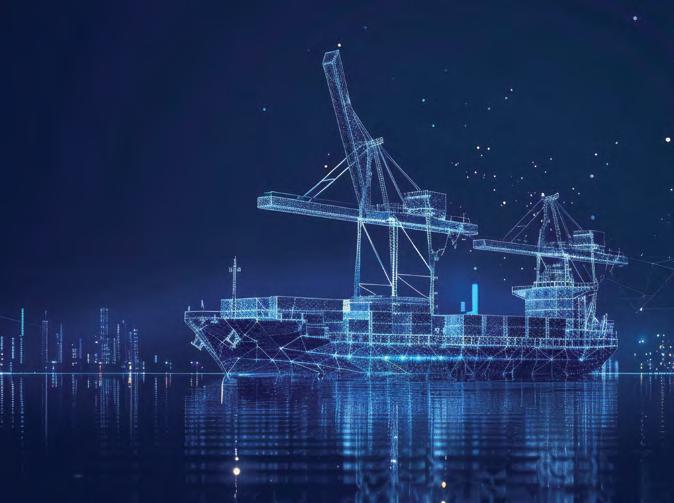
REGIONAL NEWS LNME
14 | LOGISTICS NEWS ME | APRIL 2024 WWW.CBNME.COM
“MAWANI” ENHANCES CONNECTIVITY WITH EAST ASIA PORTS BY INTRODUCING “GALEX” SHIPPING SERVICE AT KING ABDUL AZIZ PORT, DAMMAM
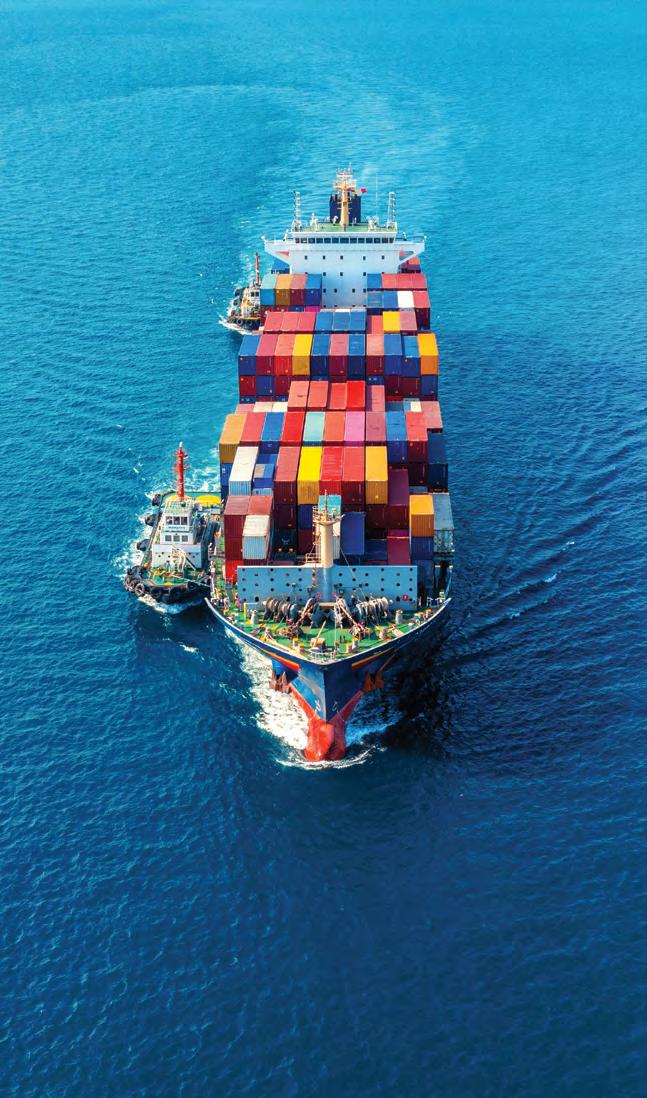
The Saudi Ports Authority “Mawani” announced that the Emirates Shipping Line (ESL) had added the new shipping service “GALEX” to King Abdul Aziz Port in Dammam. This service connects the Kingdom to ports in East Asia, enhancing maritime connectivity between the Kingdom and the world and confirming the port’s operational efficiency.
This move reflects the achievements of King Abdul Aziz Port in Dammam in terms of advanced operational levels and high logistical capabilities, which contribute to attracting the latest giant ships and significant global shipping lines, in line with the targets of the National Transport and Logistics Strategy (NTLS), to solidify the Kingdom’s standing as an international logistics hub bridging the three continents.
The new shipping service will connect King Abdul Aziz Port in Dammam to eight regional and international ports, including Shanghai, Xiamen, Dachan Bay, Qingdao in China, Busan in South Korea, Klang in Malaysia, Sohar in Oman, and Khorfakkan in the UAE, through regular weekly trips with a capacity of up to 3,000 TEUs.
It is worth noting that the partnerships entered by “Mawani” with major global shipping lines contribute to developing the Kingdom’s ports, supporting its competitiveness, developing infrastructure, expanding maritime transport routes, and improving operational and logistics service procedures.
REGIONAL NEWS
LOGISTICS NEWS ME | APRIL 2024 | 15

UAE RANKS TOP 10 IN GLOBAL CONNECTIVITY DHL CONNECTEDNESS REPORT 2024:
The DHL Global Connectedness Report analyzes close to 9 million data points, offering an in-depth perspective on the global movement of goods, services, capital, information, and people.
The UAE has surged ahead in DHL’s Global Connectedness Report to occupy the No. 8 spot among the world’s top 10 most globalized countries. It has also registered the maximum increase in performance since 2001, securing the top spot for rising connectedness among 181 countries analyzed. This demonstrates a heightened pace of physical and digital connectivity to strengthen global supply chains and facilitate international trade.
According to the report, the MENA region remains well-connected to much of the rest of the world through trade, investment, immigration, and tourism. Even as Europe leads on trade and people flows and North America leads on capital and information flows, MENA ranks second on trade. This reflects the importance of the oil trade, the rising prominence of the Gulf countries in trade networks more generally, and the close ties many North African countries have to Europe.
DHL’s Global Connectedness Report draws on nearly 9 million data points and provides a unique and comprehensive picture of how goods and services, capital, information, and people are moving worldwide. This year, for the first time, the report used a methodology that measures the world’s depth of globalization on a scale from 0% (nothing crosses national borders at all) to 100% (a “frictionless” world where borders and distance have ceased to matter). It currently stands at 25%, which means a fully globalized world is still far from a reality.
The findings suggest that despite global economic headwinds and political turmoil, global flows have proven highly resilient, growing faster than domestic activity and stretching out across greater
LNME REPORT 16 | LOGISTICS NEWS ME | APRIL 2024 WWW.CBNME.COM

distances. As such, countries continue to have many avenues to participate in international business. The Middle East region, including the UAE, has seized this opportunity and accelerated its digital connectedness to facilitate global trade and capital, information, and talent flows.
Amadou Diallo, CEO of DHL Global Forwarding Middle East & Africa, said: “Despite the economic turbulence over the past few years, DHL’s Global Connectedness report shows that globalization reached a record high in 2022 and remained close to that level in 2023. Companies expanded their international presence and earned more sales abroad. More specifically, the UAE has invested in expanding its connectivity scope by harnessing technology and introducing nationallevel policies that facilitate global trade and exchange and attract the right talent pool.”
The report also highlights a healthy appetite for international expansion, with a rise in the value of announced greenfield foreign direct investment (FDI) and publicly traded companies from most countries earning more of their sales abroad. People
flow, which was hard hit by the COVID-19 pandemic, continued a strong recovery trend in 2023.
International travel globally reached 88% of pre-pandemic levels and was on track for a full recovery by the end of 2024. According to data from the UN World Tourism Organization, the Middle East was leading the travel recovery, with international arrivals already 23% above pre-pandemic levels in 2023.
The report demonstrates that there is not – at least yet – a clear global shift underway from globalization to regionalization. Most international flows occur over stable or even longer distances, with a declining share happening inside major geographic regions. In the realm of trade, only North America shows a clear shift to more regionalized trade patterns. In the UAE and broader MEA region, new trade connections are also progressing and evolving quickly, playing a pivotal role in contributing to and accelerating overall globalization.

#RAMADAN: AMAZON ON A UPSWING
LOGISTICS NEWS ME | APRIL 2024 | 17

THE MUSTS
Managing Vulnerabilities in the Supply Chain
Supply chains are networks of companies that consist of suppliers, manufacturers, sub-suppliers, customers, and third-party service providers who interact to perform the supply chain activities of the firm and provide the end product or service. Effectively
managing a supply chain includes overseeing the entire journey of goods, from raw materials to the final products or services provided by the business. In today’s business environment, which is characterised by an increased dependence on supply chains, these networks must operate smoothly. In 2022, the global market size for
DR. FABIENNE CHEDID, Assistant Professor at Heriot-Watt University Dubai
Originally written by Dr Fabienne Chedid.
18 | LOGISTICS NEWS ME | APRIL 2024 WWW.CBNME.COM
Edited by Vibha Mehta
supply chain management reached approximately 25.74 billion USD. Projections suggest that 2032 it is expected to reach around 72.1 billion USD. Technologies like Artificial intelligence (AI) have become essential in managing supply chains effectively. AI applications have massive potential for streamlining operations and enhancing decision-making processes, from predictive analytics to autonomous vehicles. In this instance, Dr. Fabienne Chedid, Assistant Professor at Heriot-Watt University Dubai, delves into effectively managing vulnerabilities within the supply chain.
According to a recent study conducted by McKinsey, companies that actively embrace digital transformation within their supply chains can anticipate an average annual increase of 3.2 per cent in earnings. However, several challenges are associated with these transformations, particularly concerning the vulnerabilities in AI systems within the supply chain. As organisations increasingly rely on AI-driven solutions, it is vital to address these vulnerabilities proactively to safeguard against potential risks and ensure the resilience of supply chains. When organisations fail to manage these risks effectively, they become more vulnerable, which can result in significant disruptions.
The digitisation of processes between and within organisations offers significant opportunities to supply chains. However, this also introduces quality, safety, business continuity, reputation, and cybersecurity risks. According to a recent study, there was a 26 per cent rise in the average number of supply chain security breaches adversely affecting organisations from 2022 to 2023. When AI systems handle sensitive and confidential data, they become attractive cyberattack targets. A successful breach can compromise the integrity of supply chain data, leading to unauthorised access to pricing information, customer data, and intellectual property. Many companies still need help to grasp the full scope and scale of these risks to their business. The main obstacle lies in ensuring supply chain vendors promptly tackle risks upon learning about vulnerabilities or security issues. Although it is unlikely that cyberattacks will decrease, quicker detection and resolution can help to reduce their impact to some extent.
Data breaches also represent a considerable risk for businesses nowadays, and their frequency and severity are expected to rise. Organisations often face financial losses and reputation damage when a data leak or breach occurs and may be subject to regulatory and legal repercussions. Identifying a data breach can be lengthy, mainly when it originates from a software supply chain attack, intensifying the challenges. Organisations that share sensitive data with third parties are at higher risk of breaches or leaks. Common data breaches involving third-party vendors include unauthorised access through company email accounts,
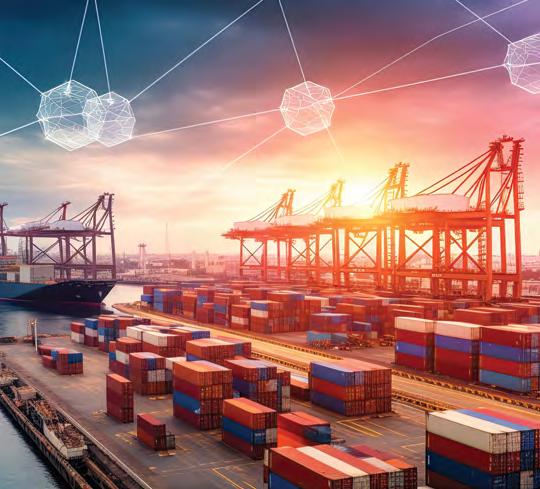
email provider hacking, lack of encryption, and insecure websites storing login information. In addition, hackers can manipulate AI algorithms by subtly adjusting parameters, allowing them to turn supply chain outcomes in their favour. This manipulation can result in biased decision-making processes that could lead to changes in supplier selections or undue favouritism towards particular vendors. For instance, this might include tweaking the data to prioritise certain suppliers over others. The complex and vulnerable nature of AI algorithms can expose supply chains to manipulation, potentially disrupting the integrity and fairness of their operations. This manipulation could be tricky enough to be overlooked, resulting in compromised decision-making. Organisations must remain vigilant and implement robust measures to safeguard their AI systems against exploitation and mitigate the associated risks. This involves regular security assessments, algorithm updates to detect emerging threats, and fostering a culture of transparency and accountability within supply chain operations.
One of the best ways to manage vulnerabilities in supply chains is by preventing them from occurring. Increasing information security awareness is essential. Companies must build and adopt a robust and resilient security awareness program that warns employees about potential risks and common cyberattacks in the supply chain. Educating teams on how to engage with secure vendors and where to look for supplier vulnerabilities is crucial. Finally, educational institutions are pivotal in preparing the future workforce for potential threats.
THE MUSTS
LOGISTICS NEWS ME | APRIL 2024 | 19
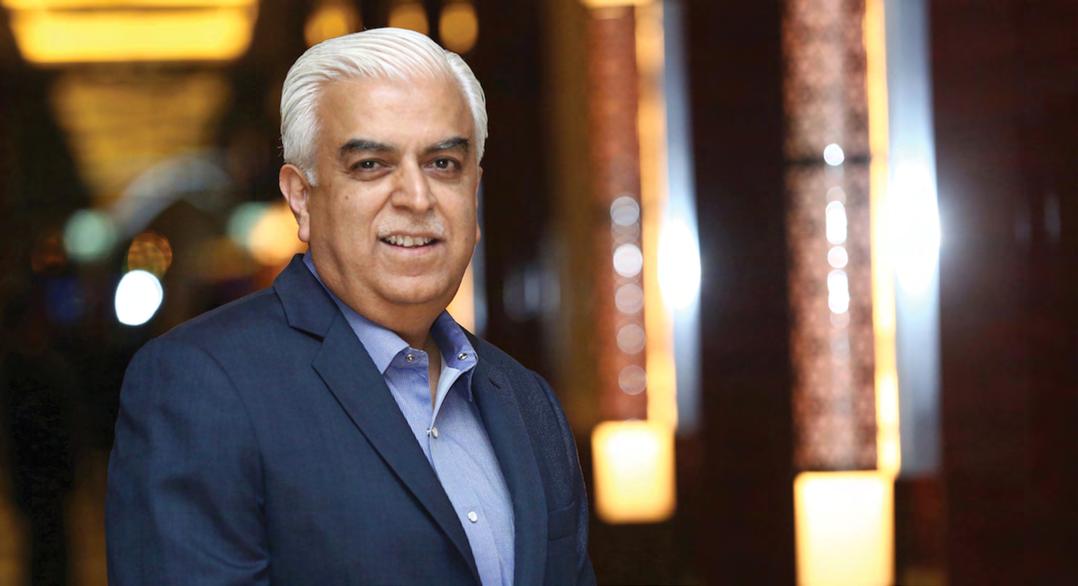 NIRANJAN GIDWANI, Consultant Director & Board Member SSGMUAE
NIRANJAN GIDWANI, Consultant Director & Board Member SSGMUAE
SUSTAINABLE WORLD ONLINE RETURNS IN A
Niranjan Gidwani, Consultant Director & Board Member SSGMUAE walks us through how businesses must effectively manage returns while simultaneously increasing online sales.
As someone deeply interested in e-commerce and online returns, I have observed the ongoing changes in this sector. Businesses now grapple with enhancing online sales while effectively handling returns, especially as last-mile delivery expenses surge, posing significant challenges to profitability. Moreover, with more consumers worldwide shifting to online shopping,
managing returns has become crucial to customer satisfaction and brand loyalty.
When one looks at a purchase process in the brick-andmortar world, one realizes that many vital factors operate subconsciously. In the case of a physical-format store, the average consumer has to put in much more effort. The consumer has to travel to the location, physically go
LNME EXPERT INSIGHT
Originally written by Niranjan Gidwani. Edited by Vibha Mehta
20 | LOGISTICS NEWS ME | APRIL 2024 WWW.CBNME.COM

through various items and try out or even touch and feel some of them. Digital shopping, on the other hand, allows consumers to step into a similar virtual space at the click of a button and step out with another click. This requires little effort on the part of the shopper.
Also, in a physical store, the salesperson spends a fair amount of time and energy with consumers, patiently showing various options. This effort of the salesperson generates a certain kind of bonding and a mindset in many shoppers that makes it easier for them to leave the shop after buying at least one item. There is another important thing that a trained salesperson will often do in a brick-and-mortar store. Clever salespersons reduce the load on shoppers by constantly moving aside those items that the shopper seems to dislike. This helps to improve the shopper’s decision-making process. Yes, salespersons also have growing numbers of bad apples, no doubt.
There is no such human interface in a digital transaction. Too many choices in the digital world could, and often do, create confusion during decision-making.
In recent times, shoppers have been displaying new behaviours, particularly in fashion and garments. In a recent article by Biju Dominic, Chief Evangelist, Fractal Analytics, an interesting phenomenon called ‘bracketing’ is rising. ‘Bracketing’ is the tendency of a consumer to buy multiple versions of a product, such as different sizes of a shirt, with the intent of sending back the ones they don’t want to keep. According to a study by Narvar, more than 58% of shoppers in the US resort to bracketing behaviour. Another practice among a few shoppers is ‘wardrobing.’ That is, wearing an item of apparel once, maybe even for an event, and then returning it. According to industry reports, a whopping 16.5% of the goods sold in the US in 2022, valued at nearly $817 billion, have been returned. In 2019, the return rate
was only 8%. As per data from Indian retailers, returns in the Indian online shopping market stand at around 25-40%. This high and increasing rate of returns is a severe problem for many online retailers.
According to a Wall Street Journal report, it costs a retailer $27 to handle the return of an online order worth $100. Many of the returned goods are not in a condition to be resold, and some are rerouted to charities. The environment bears much of the burden of this return behaviour. In the US alone, 2.6 million tons of returned clothes wound up in landfills in 2020. Fashion is the third-most-polluting industry in the world after construction and food.
Making it easy for customers to return items at no cost started as a retail strategy to entice more people to shop online. But it’s getting expensive for retailers and irreversibly expensive for our planet.
High-priced electronics, such as laptops and tablets, have short product life cycles and lose value quickly, sometimes at a rate of almost 1% per fortnight. Seasonal items, such as back-to-school supplies or winter coats, become more difficult to resell if retailers get them back on shelves after demand has bottomed out.
The interesting part is that once the returned goods are back in the hands of a retailer, according to Gartner Research, a fairly large portion may need to be sold below full price. According to US consumers, the most returned items were clothing (26%), bags (19%), shoes (18%) and accessories (13%), consumer electronics (11%), and food and beverages (11%).
While returns are a big problem for retail, many online retailers do not quantify their full cost and an equally large number do not use technology or software to better manage them. Regarding packaging, while online shopping generates 4.8 times more packaging waste than brick-and-mortar stores, returned products often require extra plastic or cardboard, which contributes more waste.
One of the critical factors of success in logistics is the wide adoption of new technology in their operations. Companies that use AI and blockchain enhance their efficiency in various ways. They can fully track the origin of goods and assist in maintaining data and minimizing cost on returns. Additionally, ESG is very high on the agenda for the UAE government and good companies. Embracing technology is a strategic move to enhance efficiency and responsiveness, contributing to the industry’s overall adaptability.
While we are all delighted with the advent of ecommerce and online shopping, this planet will undoubtedly only face adverse consequences if every part of the chain handles the returns process correctly. In this area, the start must be with the end consumer.
ONLINE RETURNS IN A SUSTAINABLE WORLD
LOGISTICS NEWS ME | APRIL 2024 | 21
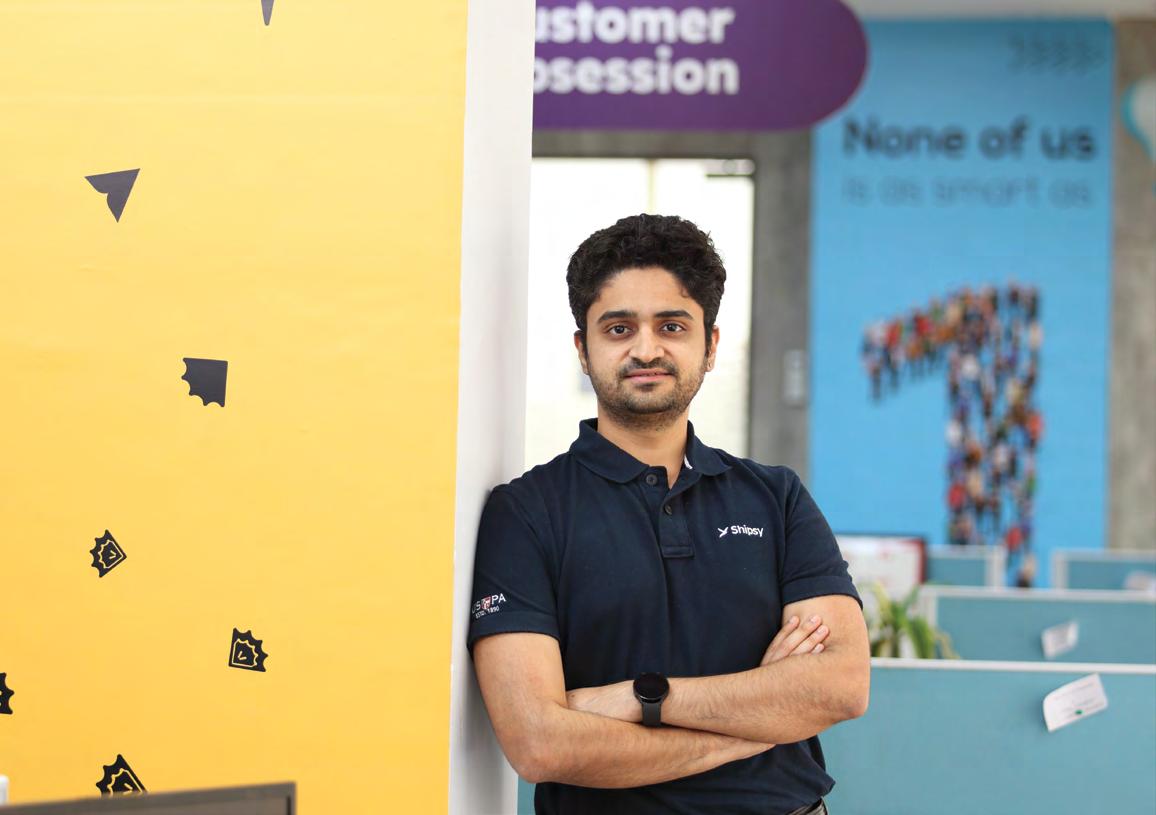
STREAMLINED FINAL DELIVERIES
Leveraging AI Co-Pilots to Drive Proactive Last-Mile Delivery Operations During Ramadan
In Middle Eastern commerce’s ever-evolving realm, the delivery journey’s final leg holds immense significance as it directly interfaces with customers. With anticipation mounting for notable spikes in doorstep deliveries, particularly heightened during Ramadan, the demand for flawless logistical operations becomes paramount. Thankfully, the infusion of AI-powered co-pilots is revolutionising the logistics domain, equipping businesses with unparalleled
efficiency and accuracy to tackle the intricacies of lastmile delivery head-on.
Growing Demand for Deliveries During Ramadan
Ramadan, a period of heightened consumer activity and increased demand for retail, food, and grocery deliveries, underscores the critical need for businesses to optimise their logistics operations and drive timely deliveries. According to Statista, food delivery
Originally written by Soham Chokshi. Edited by Vibha Mehta
22 | LOGISTICS NEWS ME | APRIL 2024 WWW.CBNME.COM
SOHAM CHOKSHI, CEO and Co-Founder at Shipsy

applications in the MENA during Ramadan can surge by 55%. This surge places immense pressure on businesses to meet heightened customer expectations and accentuates the challenges inherent in managing last-mile logistics effectively.
How AI Co-Pilots are Addressing Traditional Delivery Challenges
Traditionally, businesses suffer from reactive logistics management processes, the nonavailability of on-ground tools, and the absence of system-driven preventive/corrective assistance. These inefficiencies delay issue identification and stakeholder notification and prolong decision-making, resulting in poor customer experience and SLA compliance. However, the emergence of AI-powered CoPilots heralds a paradigm shift in last-mile logistics management, offering businesses in the Middle East a transformative solution to enhance efficiency and customer satisfaction during Ramadan and beyond.
AI Co-Pilots are addressing these inefficiencies. These pilots continuously monitor and analyse operational KPIs to proactively identify benchmarks that are about to be breached. This allows last-mile delivery managers to address issues even before they escalate. To customise potential KPI breaches, businesses can define KPIs they want to monitor actively, set custom efficiency thresholds, and establish time limits for response.
When a KPI is breached, delivery stakeholders usually spend significant time looking for the responsible party. An AI Co-Pilot quickly refers to the pre-defined organisation structure and automatically assigns incidents
or issues to the most appropriate individual on the team.
Enhancing Incident Analysis & Gaining 360° View of Incidents
Such pilots empower delivery stakeholders to gain a comprehensive view of all operational metrics on a single, user-friendly mobile application. This ensures real-time visibility into critical areas that need immediate attention.
AI Co-Pilots make incident analysis easy. On a single page, delivery managers can see all incidents and take action to address them accordingly. They can also track KPI trends to understand issues’ impact and seamlessly collaborate through comments. Senior executives can access historical status logs and detailed incident information to ensure informed decision-making and better understand incidents’ context.
AI Co-Pilot Use Case in Last-Mile
Here’s an AI Co-Pilot-powered use case. Imagine a rider is en route for a stringent time-bound delivery. A Co-Pilot quickly realises he cannot deliver on time
due to a sudden road closure on the rider’s assigned route. To avoid the SLA breach from actually happening, it immediately raises an alert to the last-mile delivery manager. The alert will request the manager to assign another rider who has a greater chance of success to deliver that order on time. Once the request is accepted, a Co-Pilot will automatically reassign the order and generate the most efficient route for the rider.
The impact of AI-powered copilots on Middle East businesses’ last-mile efficiency is profound. By preemptively addressing logistics challenges, companies can reduce the need for manual follow-ups by 82%, shrink costs by up to 62%, improve SLA adherence by 21% and increase delivery throughput by four times. Moreover, Ramadan’s cultural significance underscores the importance of delivering exceptional customer experiences. With AI-powered co-pilots ensuring seamless and timely deliveries, businesses can uphold the highest standards of service excellence, fostering customer loyalty and satisfaction.
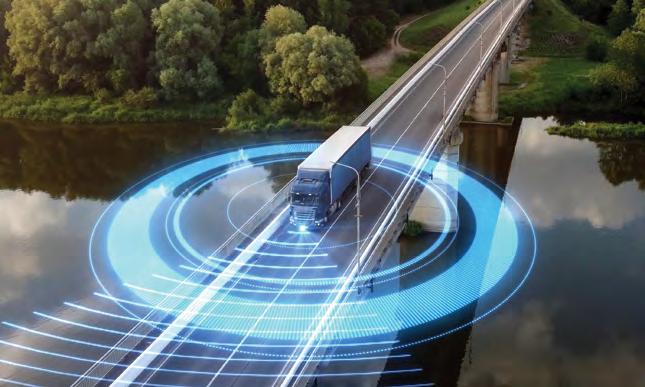
STREAMLINED FINAL DELIVERIES
LOGISTICS NEWS ME | APRIL 2024 | 23
KSA’S HOLISTIC LOGISTICS PROVIDER
In this interview, Achraf Ellili, CEO of Flow Progressive Logistics, elaborates on the company’s journey towards becoming the premier end-to-end logistics solutions provider in the Kingdom.
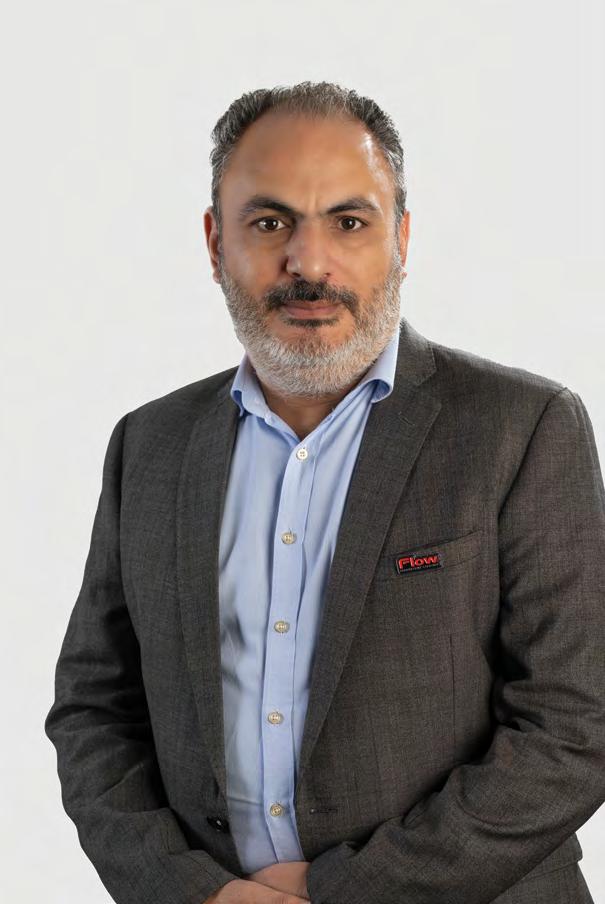 ACHRAF ELLILI, CEO of Flow Progressive Logistics
ACHRAF ELLILI, CEO of Flow Progressive Logistics
Flow Progressive Logistics leads the delivery of endto-end logistics solutions, merging vertical and horizontal operations to meet clients’ comprehensive needs. According to Achraf Ellili, CEO of Flow Progressive Logistics, “Our expertise spans the entire supply chain spectrum, offering tailored solutions that include advanced freight forwarding, customs clearance, and comprehensive logistics services, ensuring seamless transitions from global networks to local delivery points.” Leveraging partnerships with top networks like WCA & JC Trans, Flow boasts exceptional global reach bolstered by Saudi Arabia’s strategic geographical location connecting Asia, Africa, and Europe.
Their dedication to Vision 2030 is evident in their cutting-edge warehousing solutions and advanced inventory management systems, which aim to position the Kingdom as a global logistics hub. Achraf emphasizes, “We cater to the explosive growth of the e-commerce sector with customized order fulfilment
LNME INTERVIEW
24 | LOGISTICS NEWS ME | APRIL 2024 WWW.CBNME.COM
and last-mile delivery services, meticulously engineered to navigate the complex terrains of Saudi Arabia and the broader Middle East, guaranteeing timely deliveries to every corner.”
As Flow Progressive Logistics expands aggressively in KSA and the UAE, its focus on enhancing strategic locations reinforces its position as a critical player in logistics. Achraf stresses that its service suite goes beyond traditional offerings, including Ocean Freight, which has extensive international clearance capabilities across KSA, UAE, and Bahrain ports. Flow Pro’s customized service broadens the portfolio with convenient home and office moving services, short-term storage solutions, and specialized technician services. With a strong fleet and strategically positioned distribution centres, Flow Progressive Logistics sets new benchmarks for efficiency and capacity, offering clients integrated, adaptable logistics solutions covering all aspects of the supply chain.
Post-COVID-19 Expansion
Amid the COVID-19 pandemic, Flow Logistics has experienced remarkable expansion, showcasing adaptability and resilience amidst global disruptions and shifting customer needs. This growth
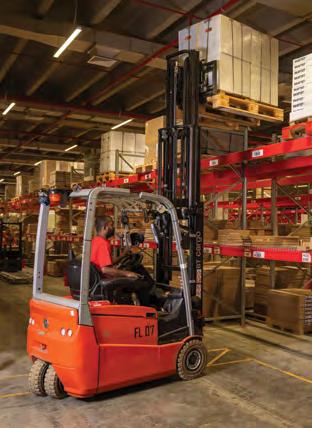
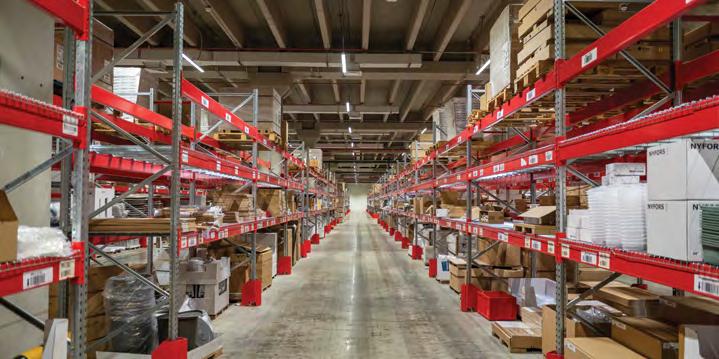
aligns with Saudi Arabia’s economic diversification goals and capitalizes on the booming e-commerce industry. Achraf says, “Our approach is rooted in a proactive strategy to anticipate and mitigate potential challenges, ensuring uninterrupted service and reliability across our operations.”
Their forward-thinking approach and adaptability are crucial for meeting their clients’ evolving demands, positioning them as essential contributors to achieving Vision 2030 objectives. By expanding its service offerings and embracing digital commerce trends, Flow Logistics consistently provides resilient logistics solutions that address both present needs and future challenges.
Innovation and Digital Transformation
In recent months, Flow Logistics has made significant strides in its digital transformation efforts. It prioritizes integrating state-of-the-art technology to optimize operations and broaden service capabilities. Achraf explains, “In our pursuit of delivering exceptional customer satisfaction, we’ve implemented advanced tracking services offering real-time visibility and insights, empowering customers with timely information.”
Drawing lessons from the pandemic’s challenges, they have bolstered their business continuity and resilience
plans. Their dedication to resilience and personalized customer integrations demonstrates their commitment to surpassing evolving client demands and expectations, solidifying their leadership in delivering customercentric logistics solutions.
Smooth Supply Chain Management
Their supply chain management strategy is grounded in four core principles: agility, efficiency, seamless connectivity, and resilience. By using Saudi Arabia’s advantageous location and investing in advanced facilities and innovative technology, they enable the efficient and timely movement of commodities both domestically and globally. “Our dedication to providing end-to-end logistics solutions is matched by our commitment to delivering personalized services, reflecting our deep understanding of each client’s unique requirements,” highlights Achraf.
Their blend of customer-centricity, a solution-driven approach, adaptability, and steadfast resilience distinguishes their supply chain management. They surpass client expectations and foster enduring partnerships grounded in trust and mutual achievement.
Sustainability Initiatives
Sustainability forms the foundation of their operations, demonstrating their dedication to environmental
KSA’S HOLISTIC LOGISTICS PROVIDER
LOGISTICS NEWS ME | APRIL 2024 | 25
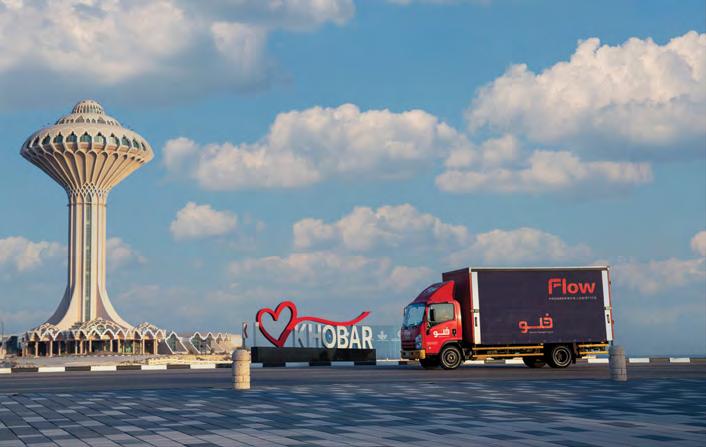
stewardship and promoting a more environmentally friendly logistics sector. By utilizing state-of-the-art automated warehouses and optimizing resources, they actively work to minimize energy consumption. They prioritize waste management and recycling, advocating for the circular economy while striving to establish a logistics framework that is both sustainable and efficient.
Achraf explains, “In our efforts to make positive contributions to the community and the environment, we collaborate with local organizations such as Tarmeem and Nama Associations, amplifying our impact on community development and environmental conservation.” They’ve formed a strategic partnership with the Saudi Logistics Academy to expand their commitment to sustainability and social responsibility. This collaboration involves sponsoring and assisting aspiring logistics professionals, offering them opportunities for growth and skill development in this dynamic field.
Strategic Expansion and Market Adaptation
The strategic initiatives for expansion
and market adaptation are closely intertwined with the Kingdom’s transformative growth path, recognizing its pivotal role and the anticipated substantial economic expansion in the foreseeable future.
Achraf explains, “Our strategy
is meticulously aligned with the Kingdom’s ambitions for technological advancement and comprehensive digitalization, as outlined in Vision 2030, with a specific focus on expanding our network across the Middle East and beyond.”
They actively adjust their infrastructure and cultivate strategic partnerships in response to the evolving logistics landscape characterized by rapid digitalization and significant e-commerce growth. This proactive approach enables them to maintain a leading position in an increasingly competitive environment and reinforces their commitment to innovation and excellence.
By aligning their objectives with the nation’s ambitious agendas and actively pursuing regional expansion, they aim to contribute to and benefit from the Kingdom’s promising prospects. Their goal is to sustain a leading role in the evolving logistics sector, regionally and globally. This regional expansion
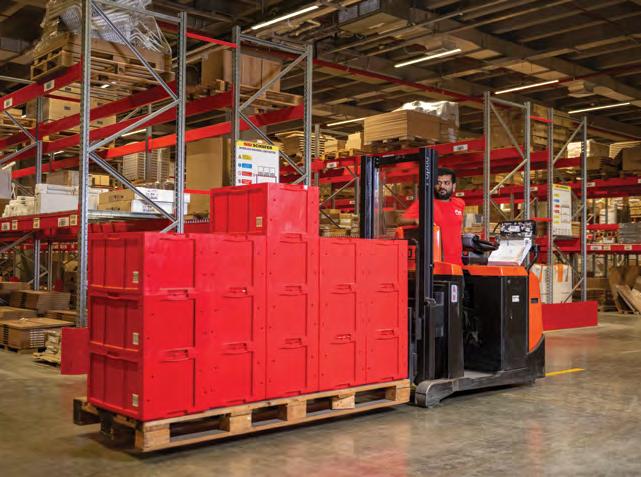
LNME INTERVIEW
26 | LOGISTICS NEWS ME | APRIL 2024 WWW.CBNME.COM
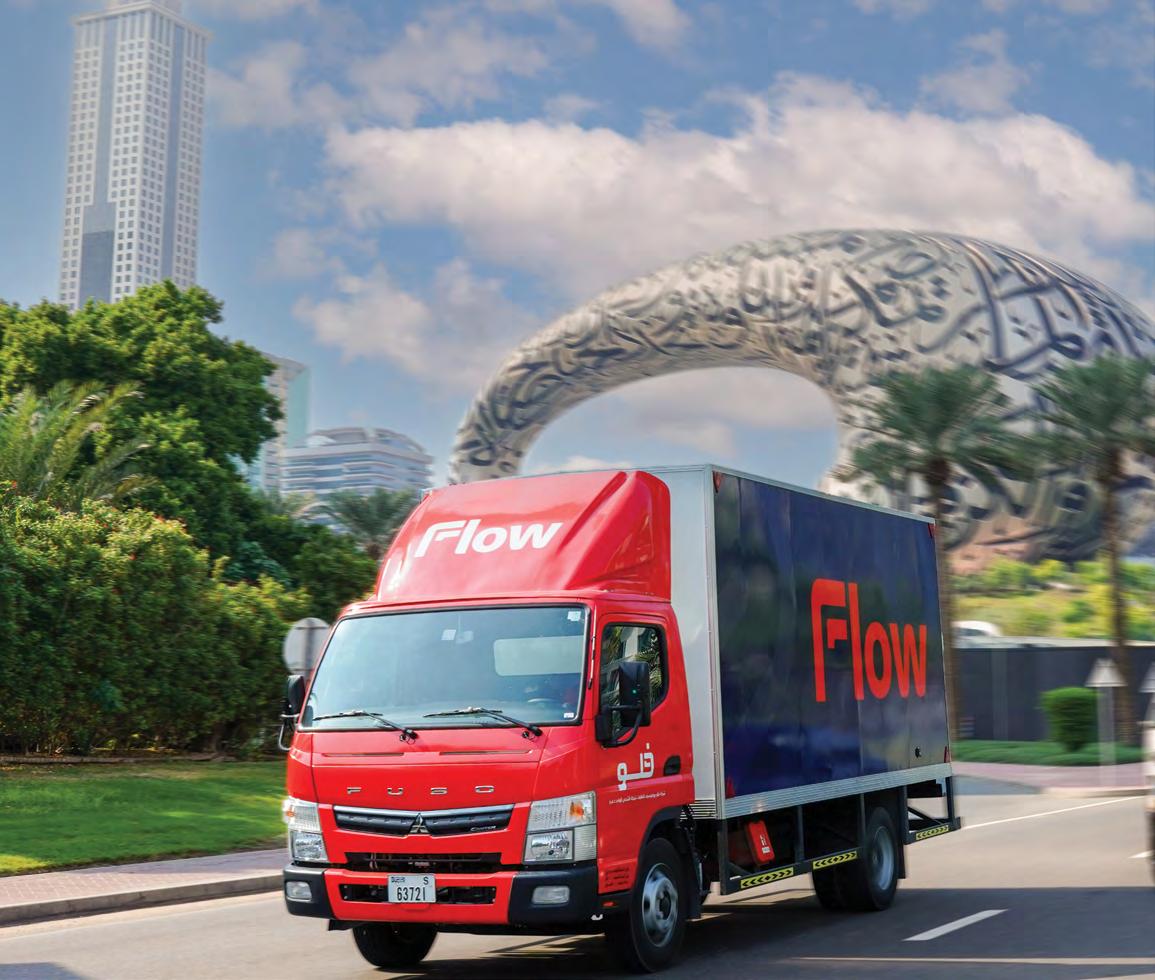
strategy goes beyond mere growth; it underscores their dedication to the interconnected development of the Kingdom and the broader Middle East. They aspire to play a central role in shaping the future of logistics in this vibrant and prosperous landscape.
Future Industry Prospects
The logistics sector is undergoing significant transformations driven by technological advancements, a heightened emphasis on sustainability, and innovative last-mile delivery solutions. A key aspect of this evolution is a strong
emphasis on customer-centric services, which envisions a future where logistics operations are more agile, efficient, and environmentally conscious while also meeting the diverse needs of businesses and consumers.
Achraf underlines, “Our commitment to customer centricity guides every aspect of our operations, ensuring that we deliver personalized experiences that truly add value to our client’s endeavours.” Their dedication to growth and adaptability underscores their ability to remain flexible in a
rapidly changing global landscape.
They aim to anticipate and effectively address the myriad opportunities and challenges that the future holds by investing in cuttingedge technologies and establishing resilient supply chains. “Our strategic emphasis on adaptability, alongside a firm commitment to sustainability and customer-centric innovation, positions us to lead the logistics sector’s journey ahead, ensuring that we consistently meet and exceed our client’s expectations in an ever-evolving world,” concludes Achraf.
LOGISTICS NEWS ME | APRIL 2024 | 27
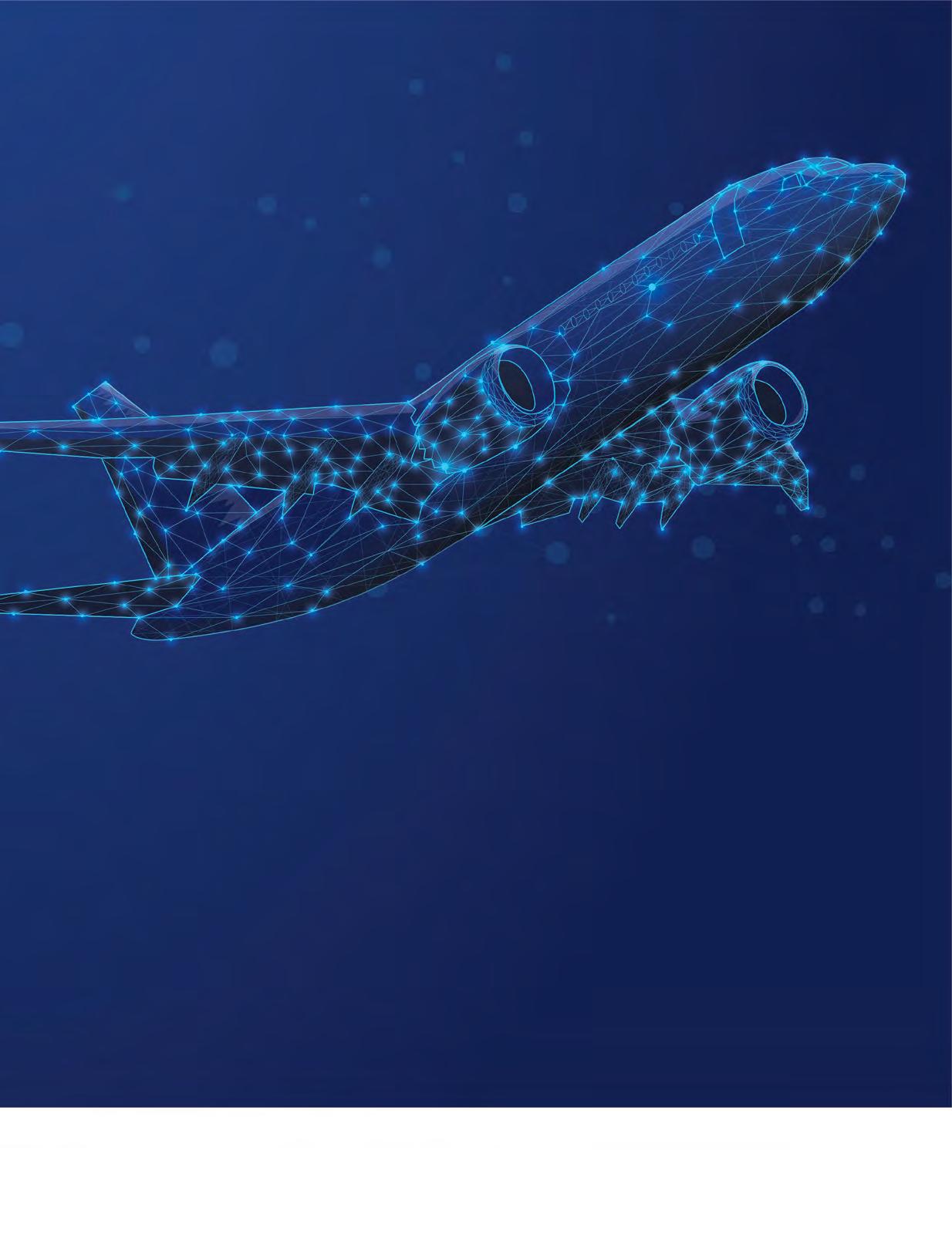
Origin & Destination Services in 150+ Countries Surface Transportation in 06 Continents Aircraft Parts Movement Engine Movements AOG Services Time Critical Movements Airside Deliveries 24/7 Operations Service Cargo On Board Courier Charter Logistics Dangerous Goods Handling Multiple Control Towers Warehousing and Quality Control www.
Expertise in the Aerospace Logistics

MAXIMIZING LOGISTICS PERFORMANCE
Angus Robertson, the Country General Manager at CHEP Middle East, discusses the company’s crucial role within the industry and its impact…

Angus Robertson holds the position of Country General Manager at CHEP Middle East, a company recognized for its pivotal role in facilitating the global movement of goods. With over a decade of experience in global sales and strategic management, Angus has consistently exceeded revenue targets while prioritizing profitability and operational efficiency. Renowned for his hands-on approach and strategic vision, he has a track record of spearheading impactful initiatives and fostering collaborative
partnerships. Angus’s leadership is characterized by a commitment to delivering tangible results, promoting teamwork, and inspiring excellence.
CHEP’s pallets, crates, and containers are essential components of the global supply chain, trusted by leading brands worldwide for their efficiency, sustainability, and safety in transporting goods. Through the innovative ‘pooling’ model, CHEP has established itself as one of the world’s foremost sustainable logistics companies, emphasizing the sharing
and reuse of its platforms. Its clientele primarily consists of industries such as fast-moving consumer goods, fresh produce, beverage, retail, and general manufacturing.
Since its inception in 2003, CHEP Middle East has been a steadfast presence in the region. As a privately owned entity, CHEP Middle East prioritizes confidentiality in its customer interactions. With 23 service centres strategically located across the Gulf Cooperative Council region, including the UAE, Saudi Arabia,
MAXIMIZING LOGISTICS PERFORMANCE
LOGISTICS NEWS ME | APRIL 2024 | 29
Bahrain, Kuwait, Oman, Qatar, and Jordan, CHEP Middle East ensures comprehensive and efficient service delivery.
Here, we discuss with Angus Robertson, gaining insights into the company and his perspectives on the evolving logistics industry…
1. What are some key challenges you see currently in supply chain logistics?
Several vital challenges persist in navigating the complexities of modern supply chain management. Global disruptions, ranging from natural disasters to pandemics like COVID-19, pose significant threats, causing delays, shortages, and increased costs. Balancing inventory levels remains a continual challenge, particularly in industries with volatile demand patterns, where minimizing excess stock while meeting demand is paramount. Additionally, rising transportation costs and capacity constraints in specific modes of transport can impede supply chain efficiency and profitability.
The digitalization of supply chains introduces cybersecurity risks, including data breaches and ransomware attacks. Lastly, demand volatility and forecasting accuracy are
• Critical concerns,
• Given fluctuations in consumer demand and market trends,
• Often resulting in challenges in accurate demand forecasting and potential overstocking or stockouts.
Addressing these challenges requires proactive strategies, robust risk management, and agile supply chain practices to ensure resilience and adaptability in an ever-evolving landscape.
2. Are there any trends in the logistics market now?
Several significant developments are influencing the direction of the sector as it navigates the complexity of the modern supply chain landscape. Embracing digital transformation stands at the forefront as businesses leverage technology to optimize efficiency, enhance visibility, and streamline decisionmaking processes across the supply chain. The exponential growth of e-commerce drives demand for innovative lastmile delivery solutions and strategically located warehousing facilities closer to urban centres. Additionally, there’s a growing emphasis on sustainable practices, with businesses adopting eco-friendly transportation modes, sustainable products, and energy-efficient warehouses to align with environmental responsibility objectives.
Heightened awareness of supply chain resilience, catalyzed by disruptions like the COVID-19 pandemic, is prompting the diversification of sourcing strategies and the implementation of robust risk management measures. Furthermore, regulatory changes are reshaping the landscape with new regulations and trade agreements aimed at standardization, reducing trade barriers, and fostering international trade within the region
and beyond. As businesses navigate these trends, proactive adaptation and strategic alignment with evolving market dynamics are essential for maintaining competitiveness and sustainability in the ever-evolving supply chain ecosystem.
3. How does CHEP stand out from other companies in the industry?
CHEP distinguishes itself from competitors in the industry through several key factors:
• Circular Economy Approach: CHEP promotes sustainability by pioneering the concept of a circular economy within logistics. They offer pooling services for pallets, crates, and containers, emphasizing asset reuse and recycling to reduce waste and environmental impact.
• Extensive Global Network: CHEP operates in over 60 countries and serves diverse sectors, such as consumer goods, retail, agriculture, and automotive. It boasts a vast global network and unmatched expertise.
• Innovation: Through ongoing research and development, CHEP introduces innovative solutions, such as track-andtrace technology, digital asset management platforms, and sustainable packaging options, to meet evolving customer needs.
• Quality and Reliability: Renowned for high-quality products, rigorous quality control measures, and dependable service, CHEP has earned a reputation for excellence, earning trust worldwide.
• Supply Chain Expertise: With decades of experience in supply chain logistics, CHEP offers valuable insights to help customers optimize operations, enhance efficiency, and reduce costs.
• Collaborative Partnerships: CHEP collaborates closely with customers to understand their requirements and develop tailored solutions, fostering long-term relationships and customer loyalty.
• Efficiency Focus: CHEP enables customers to achieve greater efficiency and cost savings throughout their operations by streamlining supply chain processes, optimizing pallet flows, and reducing product damage and transportation costs.

LNME SOLUTIONS 30 | LOGISTICS NEWS ME | APRIL 2024 WWW.CBNME.COM
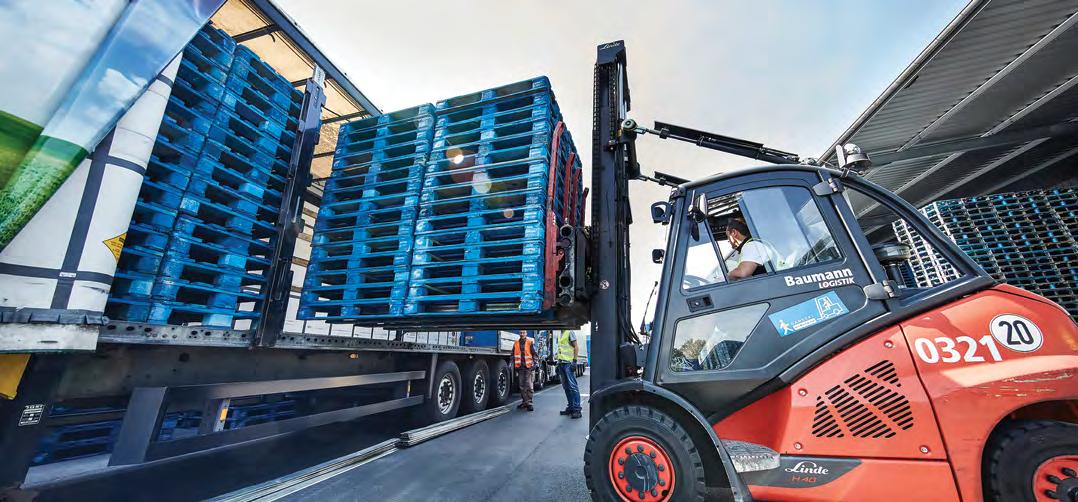
4. Given the rapid speed of digital transformation, how does your company create a culture of innovation within the organization? Their data analytics and asset digitization capabilities are poised to revolutionize the customer experience, potentially uncovering substantial shared value with clients. By pinpointing and preemptively addressing inefficiencies in supply chains, they aim to bolster operational efficiency. Expanding on existing progress, advanced data analytics solutions have been seamlessly integrated across the organization. Efforts are ongoing to refine tracking technologies’ deployment, address operational challenges and explore scalability prospects. Additionally, a suite of innovative digital solutions is developing to empower customers to transform their supply chains and foster efficiency, agility, and sustainability.
5. What initiatives has CHEP undertaken to promote environmental sustainability within its operations?
Sustainability is a top priority for CHEP worldwide, with a pioneering strategy focused on restoring and
replenishing environmental resources. Embracing forest-positive goals, the company aims to enable the sustainable growth of two trees for each used in its operations by 2025. Maintaining a commitment to 100% sustainably sourced timber since FY20, CHEP recently achieved a significant milestone by introducing its first product made entirely from post-consumer plastic waste, the wheeled Q+. Surpassing targets, over 30% of new platforms now incorporate recycled or upcycled plastic, showcasing the successful integration of sustainability into product development. Additionally, CHEP has achieved carbon neutrality and 100% renewable electricity for its operations while steadily reducing total emissions across all scopes.
6. How do you see the future of supply chain logistics in the next period?
The evolution of supply chain logistics is poised for significant change, fueled by technological progress, sustainability efforts, and shifting consumer needs. Digitalization and automation will transform operations, boosting efficiency and transparency throughout the supply chain. Sustainability will
take centre stage, with firms embracing eco-friendly practices and renewable energy. Moreover, customer-centric strategies and inventive solutions will drive the industry forward, prioritizing tailored experiences and advancements in last-mile delivery. The future presents vast opportunities for companies to streamline operations, promote sustainability, and adapt to the dynamic global market.
7. Where will CHEP be heading in the next decade?
In the coming decade, CHEP plans to maintain its leadership in the supply chain industry by focusing on customer satisfaction and operational efficiency. This involves expanding its global presence, leveraging advanced technologies, and refining solutions to meet evolving market needs.
Sustainability remains a top priority, with CHEP aiming to reduce its environmental impact and promote eco-friendly practices. By prioritizing employee wellbeing and fostering a culture of innovation, the company aims to drive impactful transformation while sustaining growth and shaping a more sustainable future for the industry.
MAXIMIZING LOGISTICS PERFORMANCE LOGISTICS NEWS ME | APRIL 2024 | 31

BRIDGING BORDERS
Sanjeev Dutta, CEO of the UAE-India Business Council - UAE Chapter, discusses with Vibha Mehta how the business chamber catalyzes boosting bilateral trade between the two nations …
LNME COVER STORY
32 | LOGISTICS NEWS ME | APRIL 2024 WWW.CBNME.COM
The UAE India Business Council greatly aids the development of economic relations between the two nations. Could you provide more details about a few of the major projects the council is working on?
UIBC-UC’s mission is to catalyze investment flows, enhance trade, build strategic partnerships, advocate for policy enhancements, and facilitate knowledge exchange. This mission reflects both countries’ commitment to enhancing their economic partnership, which is greatly strengthened by several pivotal projects.
The Emaar Project by the UAEbased property development firm is the first foreign direct investment in Srinagar, India. This 500 Cr initiative encompasses a state-of-the-art 1 million sq ft. shopping mall and a multipurpose tower, showcasing the potential for future collaborations and investments.
Another critical endeavour is Bharat Mart, a joint venture between DP World and the Government of India in JAFZA. This massive trade ecosystem is designed to promote the ‘Make in India’ initiative, serving as a gateway for Indian product exports to the larger GCC & MEA markets. Bharat Mart is seen as a strategic imperative to enable larger entities and provide access to MSME and SME sectors through a onestop shop to cater to more extensive and more accessible markets, using Dubai as a gateway to major markets such as Africa and CIS. The facility will be designed so that a participant can cater to both the domestic UAE market and the broader GCC market and re-export markets while enjoying favourable duty structures designed to provide tax holidays.
Platforms such as Bharat Mart are crucial in influencing bilateral trade volume between the UAE and India, particularly by promoting trade
diversification. In the first 12 months of CEPA implementation, non-oil trade saw a notable increase of 5.8%. Post-CEPA, the total bilateral trade has surged to $84.5 billion in March 2023, up from $72.9 billion in March 2022. Through this project, we aim to establish Dubai as a pivotal launchpad for Indian goods, underlining the strategic importance of our bilateral trade relations.
Furthermore, our efforts extend to social initiatives such as the India hospital project, which aims to improve healthcare accessibility for 2.2 million blue-collar workers in the UAE with insufficient insurance coverage. This goes beyond economic collaboration to address vital social needs.
Complementing these projects, we are deeply invested in knowledge-building, actively publishing comprehensive white papers illuminating the vast opportunities in both nations. These
efforts highlight our commitment to enriching the economic corridor, promising a future with exciting initiatives aimed at mutual prosperity.
Bilateral trade is predicted to rise dramatically as a result of the CEPA. Which particular product categories are growing at the fastest rate?
The Comprehensive Economic Partnership Agreement (CEPA) between India and the UAE sets the stage for a remarkable increase in bilateral trade to boost the total value of trade in goods to over US$100 billion and trade in services to over US$15 billion within five years.
With projects like Bharat Mart, India stands to benefit significantly from preferential market access provided by the UAE for 99% of Indian exports, especially from labour-intensive sectors such as Gems and Jewellery, Textiles, Leather, Footwear, Sports Goods,

BRIDGING BORDERS
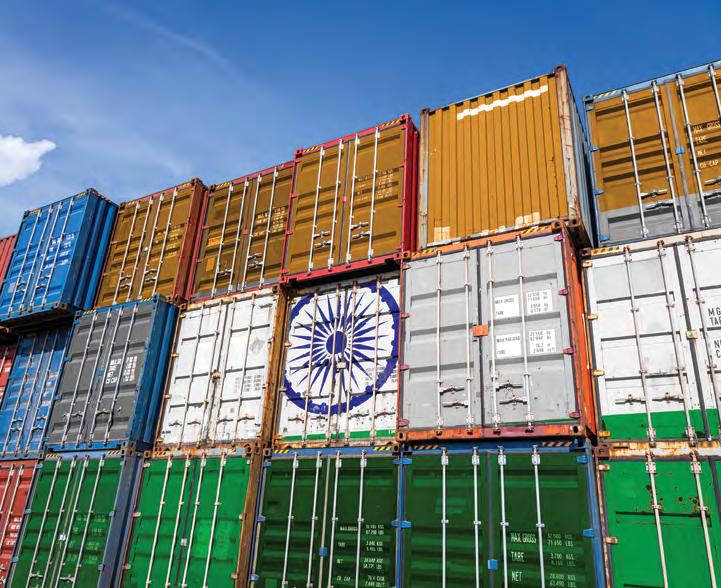
Plastics, Furniture, Agricultural and Wood Products, Engineering Products, Pharmaceuticals, Medical Devices, and Automobiles. Through expanded market access, direct interaction with UAE and global clientele under one roof, a diverse product range, reduced dependence on traditional channels, cultural exchange, and strengthened trade relations, marketplaces like Bharat Mart play a pivotal role in enhancing the breadth and depth of trade between the two countries.
The textile sector is crucial to India’s economy and is one of the largest employers in the country. It employs over 45 million people and contributes approximately 14% to its GDP. CEPA’s reduced tariffs and improved market access will likely propel textile exports and imports between our nations.
India’s burgeoning tech industry, known for its innovation and vast talent pool, aligns with the UAE’s vision
to establish itself as a technology and digital services hub. India’s ambition to grow its tech industry to USD 500 billion by 2030 showcases its vast potential. The country’s status as the third-largest startup ecosystem, with over 99,000 DPIIT-recognised startups as of 31 May 2023, indicates robust growth. The UAE and India also recently agreed to link their instant payment platforms - UPI (India) and AANI (UAE), fostering growth for payment gateways.
The pharmaceutical sector is also poised for accelerated growth, particularly in the production and export of generic drugs, due to streamlined trade procedures and regulatory cooperation under CEPA.
Agricultural products will see an increase in exports of fruits, vegetables, and processed foods, benefiting from initial agreements signed at the Vibrant Gujarat Business Summit for
the construction of food parks with climate-smart technologies.
Renewable energy, a sector of mutual priority for achieving net-zero emissions by 2070 (India) and 2050 (UAE), received a significant boost with agreements for investment and trade in technologies like solar panels and wind turbines signed at the same summit.
How can the logistics sector adjust to meet the growing need for expedited and streamlined cross-border cargo transportation?
To adapt to the increasing demand for swift and efficient cross-border cargo transportation, especially between crucial trade partners like the UAE and India—where the UAE stands as India’s third-largest trading partner and second-largest export destination, representing 40% of India’s trade with the Arab world—the logistics sector must embrace several strategic shifts:
Digitalisation and Automation: Implement advanced technologies for process automation to reduce delays and improve accuracy. This includes everything from digital paperwork and e-bills of lading to automated customs clearance systems.
Regulatory Harmonisation: Policy alignment can streamline customs and clearance processes, reducing bureaucratic hold-ups and significantly expediting cross-border transportation.
Supply Chain Visibility: Enhance transparency with real-time tracking systems of location, status, and estimated arrival times, allowing for efficient planning, response to disruptions and timely delivery.
Specialised Services: Develop tailored logistics solutions, such as temperaturecontrolled supply chains for sensitive pharmaceutical shipments, ensuring
LNME COVER STORY 34 | LOGISTICS NEWS ME | APRIL 2024 WWW.CBNME.COM
product integrity and compliance with specific transportation needs.
Due to the increase in trade volume, infrastructure in logistics will need to be heavily invested in. Which parts of the logistics chain—such as ports, warehouses, and transportation networks—need the most immediate attention?
To accommodate the surge in trade, with India’s logistics market set to hit $380 billion by 2025 and the UAE’s logistics sector projected to exceed $31 billion by 2026, prioritising digital infrastructure and warehouse automation becomes imperative. Enhancing digital platforms and analytics tools will streamline trade management, augmented by initiatives like RuPay’s launch in the UAE. This makes it easier to keep track, make better decisions, handle trade effectively and make cross-border transactions easy.
Moreover, as India gears up to become the second-largest e-commerce market by 2034, automated warehouses are vital, offering improved efficiency, accuracy, and productivity to meet the growing demand efficiently. It will also
enable companies to automate mundane tasks such as tracking shipments or managing inventory levels. This will also reduce manual handling of goods, minimising the risk of product contamination or tampering,
How can technology enhance transparency and streamline logistics in the trade corridor between India and the UAE?
Technology can significantly enhance transparency and streamline logistics in the India-UAE trade corridor. Implementing real-time tracking through GPS and IoT sensors enables precise monitoring of cargo, ensuring visibility and timely updates.
Blockchain technology revolutionises digital documentation, offering secure, immutable records that simplify customs procedures for valuable goods, including gems and jewellery.
Moreover, data analytics tools are crucial in analysing supply chain data to highlight performance insights, identify bottlenecks, and optimise routing and resource allocation.
Using digital platforms, companies

can leverage their brand, network, and technology capabilities. This can help the platforms in the UAE contribute to UIBC’s goals of promoting trade, investment, and economic cooperation between India and the UAE as they break down geographical barriers, enabling Indian businesses to showcase their products and services to a broader clientele in the UAE and vice versa. Corporations can overcome traditional trade constraints, such as logistical challenges and limited market access. Through strategic partnerships, innovative solutions, and targeted initiatives, platforms like Rupay, Lulu Financials, and Wizz Financials can enhance the value proposition of digital platforms for Indian users in the UAE and strengthen bilateral ties between the two countries.
Furthermore, digital platforms seamlessly integrate trade and related transactions, such as structured trade and trade financing. There could be no better option than the UAE, whose leadership focuses sharply on digitalisation, Artificial Intelligence, and the advantages of a digital economy.
These technological interventions promise a more efficient, reliable, and transparent logistics framework, facilitating smoother trade flows between India and the UAE. UIBC-UC advocates for policies that support integrating digital technologies in cross-border trade, thereby creating an environment conducive to businesses harnessing the full potential of digital marketplaces.
How can the logistics industry meet the increasing need for effective trade facilitation between India and the UAE by attracting and retaining qualified professionals?
To effectively cater to the escalating demand for efficient trade facilitation between India and the UAE, the
BRIDGING BORDERS LOGISTICS NEWS ME | APRIL 2024 | 35
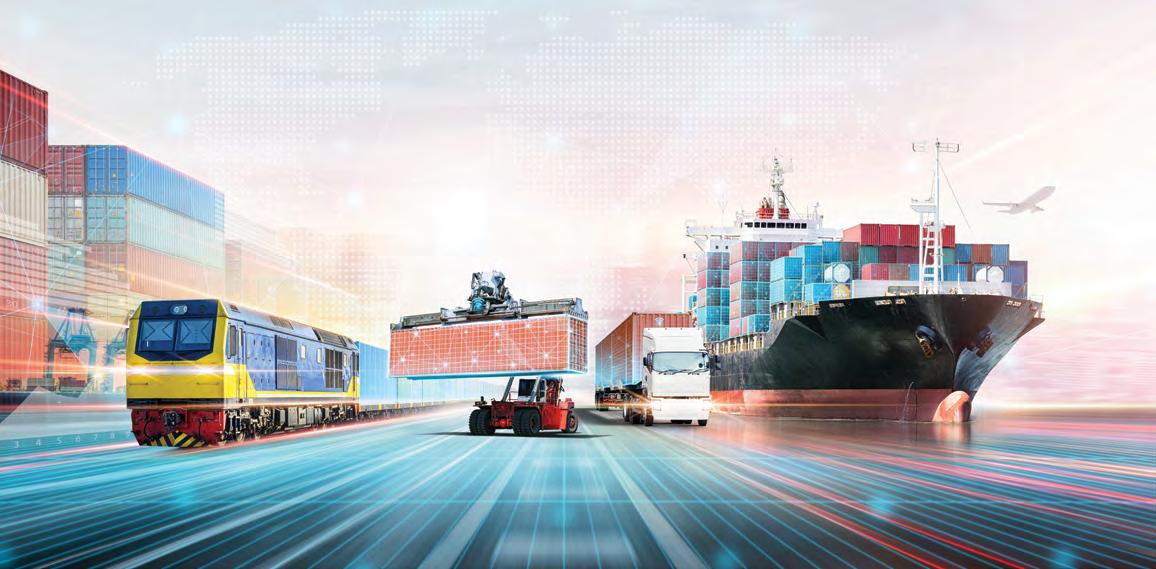
logistics industry needs a multifaceted approach focused on innovation, skill development, and knowledge enhancement.
Firstly, the industry can significantly improve operational efficiency and process accuracy by investing in cutting-edge technological solutions, such as artificial intelligence (AI), blockchain for secure and transparent transactions, and the Internet of Things (IoT) for enhanced tracking and inventory management. This technological leap would streamline logistics operations and create an attractive work environment for tech-savvy professionals looking for dynamic and innovative workplaces.
Enhancing technological infrastructure requires developing a skilled workforce adept at leveraging these new tools. Thus, offering continuous learning opportunities, training programs, and professional development courses tailored to the logistics sector’s evolving landscape is essential. This commitment to workforce development ensures that employees remain at the forefront of industry advancements, making the organization more appealing to potential hires and aiding in retaining top talent.
Recruiting sector-specific experts, particularly those with specialized knowledge of the India-UAE trade corridor, becomes increasingly important. These individuals bring a wealth of experience and insight, which is crucial for navigating this specific trade route’s unique challenges and opportunities. Their expertise enables the logistics sector to devise and implement strategies that are effective and specifically tailored to the nuances of India-UAE trade, ensuring optimal efficiency and customer satisfaction.
Furthermore, fostering a culture of innovation and collaboration within the industry encourages professionals to contribute their ideas and solutions, enhancing the logistics sector’s overall productivity and creativity. This approach attracts individuals with a forward-thinking mindset and helps

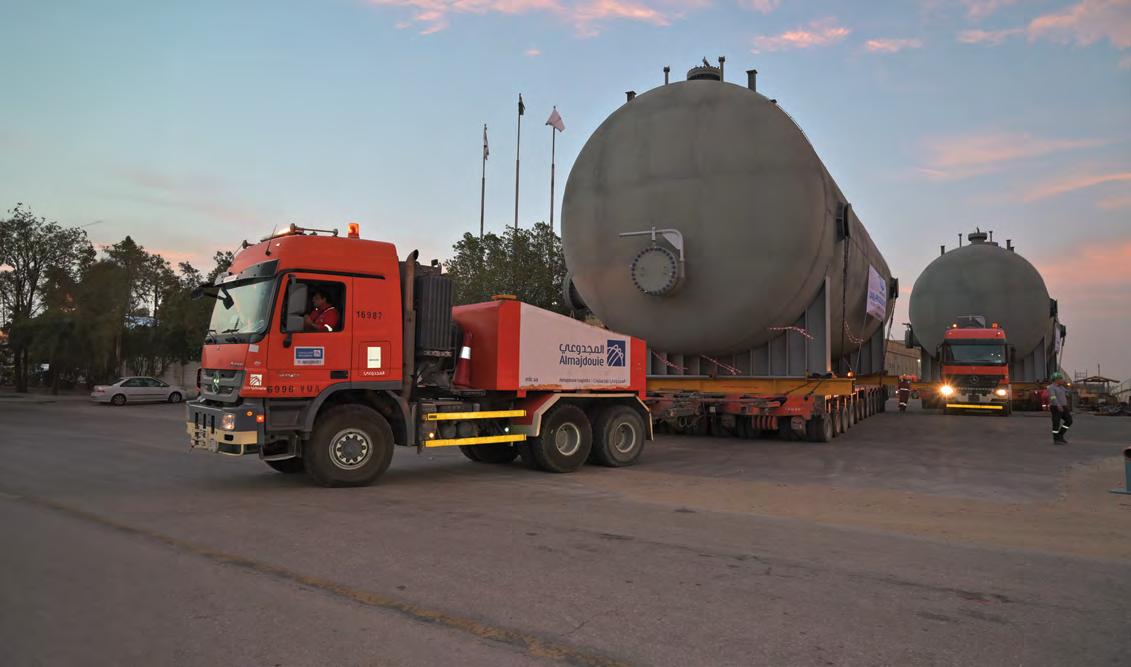
36 | LOGISTICS NEWS ME | APRIL 2024 WWW.CBNME.COM
Visit us at BBME - Dubai Booth Stand: E24

Sustainable logistics for a brighter future
Almajdouie Logistics serves diverse industries, including petrochemical, oil & gas, utilities, FMCG, retail, and automotive. With 50+ years of quality and reliability, it exceeds customers’ expectations. Specializing in project logistics, Almajdouie deploys extensive assets, including a 1,100-ton gantry crane, conventional trailer axles, SPMTs, and lowbed trailers for transpor ting oversized cargo.
Serving Saudi Arabia, Middle East , and Far East megaprojects, it suppor ts sustainability through national renewable energy initiatives like Dumat Al Jandal wind farm and Sakaka Solar PV plant , shaping a cleaner future. Transportation


us www.mlc .sa
Contact
Freight Forwarding Projects Logistics Terminal Handling Customs Clearance Warehousing
LOGISTICS NEWS ME | APRIL 2024 | 37

UNLOCKING SUCCESS
In a conversation with Hamza El Shaer, Starlinks’ Marketing and Growth Executive Director, Vibha Mehta explores the company’s digital innovation transforming businesses
LNME SOLUTIONS 38 | LOGISTICS NEWS ME | APRIL 2024 WWW.CBNME.COM
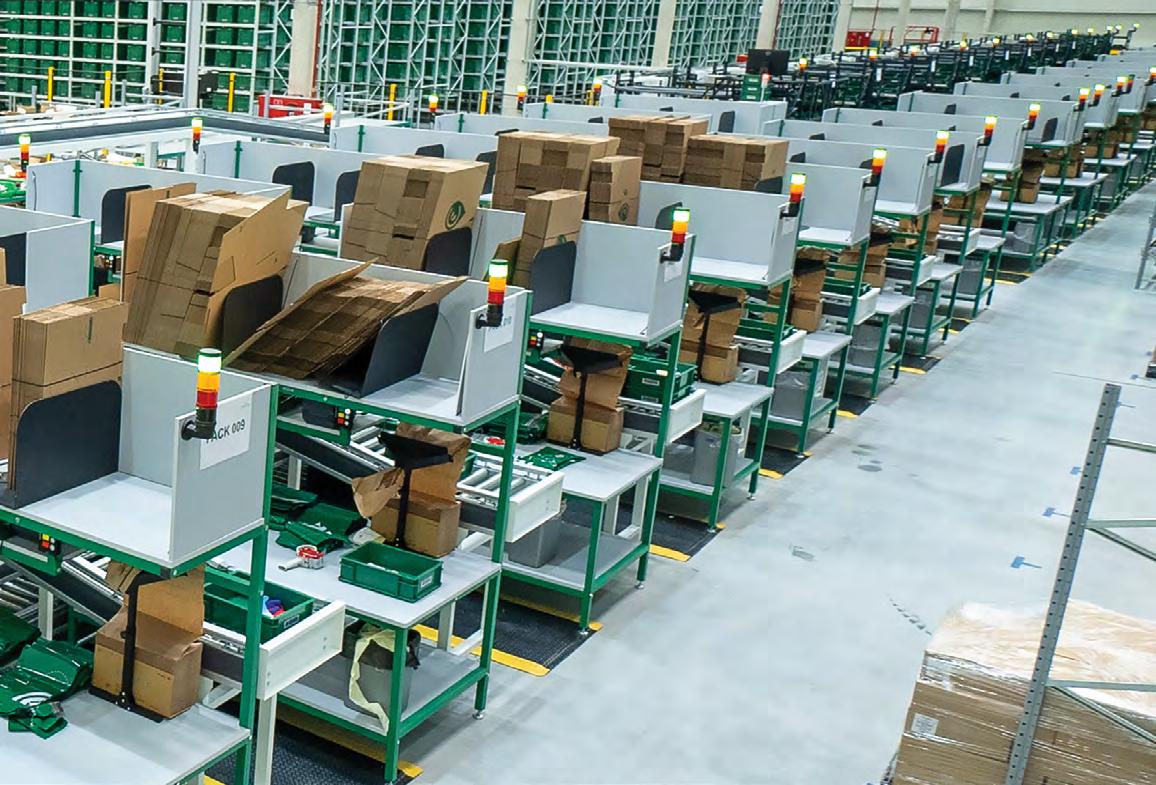
Established in 2019 as part of the AZAQ Investment Holding Group in Saudi Arabia, Starlinks swiftly rose as a leading supply chain solutions provider in the GCC. Their primary focus on customer satisfaction and innovative problem-solving has empowered businesses seeking transformation and rapid expansion. Initially concentrating on B2B warehousing and transportation, they expanded into e-commerce, providing comprehensive last-mile services. In 2022, they introduced Starlinks Global, enabling tech-driven cross-border
e-commerce shipping. The highlight came in 2023 with the introduction of their pioneering hybrid fulfilment centre, seamlessly integrating manual and robotic operations. In 2024, they unveiled Starlinks Solutions, leveraging their automation, software, and robotics expertise to offer businesses a streamlined ‘SMART’ supply chain solution.
Unique Elements
Starlinks’ e-commerce fulfilment service introduces a groundbreaking hybrid solution, the first in the market. “Our groundbreaking approach seamlessly
integrates manual picking operations within a ground-plus-four-level picktower, alongside a state-of-the-art robotics picking and sorting station,” shares Hamza El Shaer, Marketing and Growth Executive Director of Starlinks. This state-of-the-art system can handle an extensive inventory of up to 9 million items and efficiently process 60,000 daily shipments. Using their unique tech aggregator system, they collaborate seamlessly with various 3PL partners, ensuring smooth operations. With this integrated approach, they achieve impressive performance metrics, such as a 95% ship-out rate, a 99%
UNLOCKING SUCCESS LOGISTICS NEWS ME | APRIL 2024 | 39
first delivery attempt rate within SLA, and leading same-day delivery service in critical hubs like Riyadh, Jeddah, and Dammam.
Digital Transformation
Starlinks prioritizes technology in all operations, utilizing advanced solutions from infrastructure development to final customer delivery to enrich customer experiences. Hamza adds, “Our facilities boast the latest Material Handling Equipment (MHEs) and adhere to rigorous Quality, Health, Safety, and Environment (QHSE)
standards, ensuring utmost safety and efficiency.”
Teaming up with renowned firms like Geek+, they integrate cutting-edge technologies like Autonomous Mobile Robots (AMRs) to enhance picking, sorting, and conveyance efficiency. They also employ route optimization systems, on-time address validation, and transport management tools to simplify operations and facilitate smooth crossborder shipping. This technologyfocused strategy extends to empowering staff, seamlessly integrating technology into their daily tasks. Through their
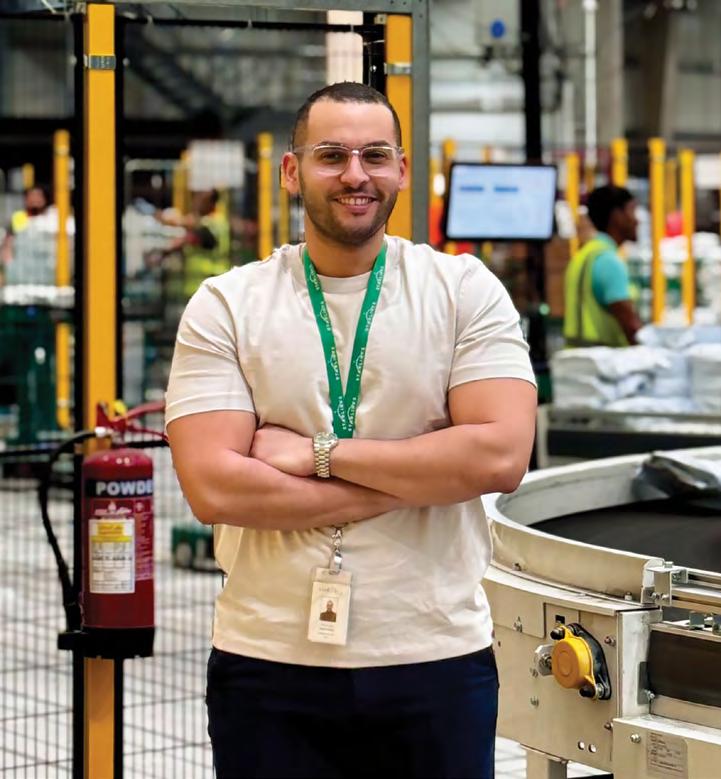
commitment to technology, they aim to enhance customer satisfaction, boost employee productivity, and achieve operational excellence across their value chain.
Trends In 2024
According to Hamza, there’s a notable rise in consignee and end-consumer demands for logistics and supply chain services in the Kingdom. Quick order fulfilment has become the norm, with same-day delivery becoming increasingly common. The presence of multinational corporations and the adoption of electric vehicles (EVs) are undergoing a shift in the logistics sector, indicating significant transformation ahead.
This shift will result in expanded operations into broader regions, such as the Red Sea and Neom, necessitating a more comprehensive logistics network and enhanced road infrastructure to facilitate connectivity with other GCC countries. “Additionally, we anticipate a rise in bonded/free zones not only near ports but also within mainland areas, further optimizing trade and distribution processes,” explains Hamza.
This transformation mirrors a vibrant environment where innovation and flexibility are crucial in addressing the market’s changing needs. It is essential for sustaining growth and competitiveness within the Kingdom’s logistics sector.
Challenges
“People remain our foremost challenge, particularly in a competitive environment like the Kingdom where attracting top talent is a constant endeavour for all,” highlights Hamza. Starlinks recognizes the significance of cultivating a skilled workforce and has invested in a second-to-none employer branding program.
He continues, “Our program ensures every employee has access to
LNME
SOLUTIONS
40 | LOGISTICS NEWS ME | APRIL 2024 WWW.CBNME.COM
HAMZA EL SHAER, Starlinks’ Marketing and Growth Executive Director

personalized growth plans and career development opportunities.” In the future, they aim to introduce The Starlinks Academy, an innovative project to transform supply chain progress in the Kingdom. Their focus on employee growth and promoting a culture of ongoing learning and progression aims to attract top talent, retain them, and empower them to lead innovation and excellence in the company and the wider sector.
Sustainability
The sector is experiencing a significant shift toward sustainability as firms adopt measures like renewable energy, ecofriendly packaging, and green transportation. Prioritizing sustainability offers more than
environmental benefits; it also boosts competitiveness, builds customer loyalty, and ensures long-term profitability. Essentially, sustainability is ethically necessary and strategically vital for resilience, innovation, and sustained success in a changing environment.
Foresight
In the future, Starlinks will lead the way in e-commerce logistics innovation by introducing the Starlinks Solutions Division in 2024. Utilizing their automation, software, and robotics proficiency, they provide businesses with an advanced ‘SMART’ supply chain solution that surpasses conventional services.
“Our approach includes comprehensive services such as facility design, construction, lifecycle management, and operational support. This end-toend solution, encompassing Design, Build, Operate, and Transfer (DBOT) capabilities, is tailored to meet each client’s specific needs. In Starlinks KSA’s Contract Logistics segment, our ‘Operate’ function operates as a traditional 4PL model, seamlessly integrating with our holistic approach,” says Hamza.
As they prepare to develop new supply chains to accommodate the region’s expanding economy, Starlinks is dedicated to providing effective and customized solutions that guarantee a smooth and gratifying customer experience both domestically and internationally.
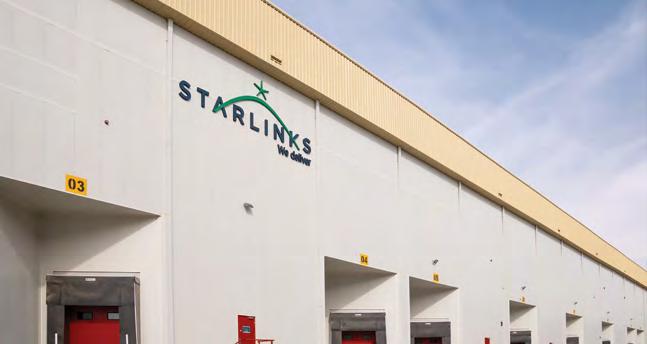
UNLOCKING SUCCESS LOGISTICS NEWS ME | APRIL 2024 | 41
COMING TO A FULL CIRCLE
Angad Singh, Global Director of Innovation at Aramex, interacts with Vibha Mehta on how innovative techniques shape the logistics industry…
Angad Singh, currently overseeing Aramex’s innovation portfolio, manages current products and spearheads the development of next-generation solutions. With a background spanning from manufacturing to operational roles at Fetchr, Amazon, and Aramex, he brings a wealth of experience to the logistics industry. His journey began in manufacturing, driven by a passion for automobiles. At Amazon, he was pivotal in managing fulfilment operations during the company’s entry into the Indian market. With exposure to the startup landscape, Angad gained insights into the e-commerce industry through various projects. “Reflecting on my career journey, I initially ventured into manufacturing with a keen interest in the automotive sector. Working directly with the CEO exposed me to impactful projects across various corporate and enterprise levels, shaping my path to becoming the Global Director of Innovation at Aramex,” says Angad Singh,
 ANGAD SINGH, Global Director of Innovation at Aramex
ANGAD SINGH, Global Director of Innovation at Aramex
LNME INNOVATION
42 | LOGISTICS NEWS ME | APRIL 2024 WWW.CBNME.COM
While COVID-19 posed significant challenges, Angad acknowledges the resilience and adaptability within the network and planning that enabled them to overcome obstacles. Looking ahead to 2021, Angad seized the opportunity to spearhead innovation at Aramex, focusing on developing novel products, processes, and revenue streams. Angad expresses, “Currently, I’m enjoying the process of building for the future while actively engaging in the present.”
Speaking of innovation, Angad believes that disruptions result from a finely tuned innovation engine. He underscores the term “engine,” drawing parallels with his automotive background. The evaluation engine, he elaborates, sifts through ideas from internal and external sources, including customer problem statements. These ideas form the basis for developing products, programs, and processes. Once implemented, their impact on addressing the identified issues is measured, resulting in tangible outcomes. At Aramex, ideas are carefully evaluated and categorized within a ‘product-program pool.’ Through thorough research and classification based on impact and customer priorities, selected products, processes, and programs are introduced to the market. About 12 such initiatives have been successfully launched, each aiming for significant impact and disruption.
An example is the ‘Future Vehicle’ program, which

explores innovative methods for transporting parcels and cargo across air, sea, and land, reflecting the outcome of a wellfunctioning innovation engine. Initially focused on drones, Aramex successfully integrated drone delivery into its operations in Oman over a year ago. Today, shipments are still being delivered via drones. Building on this success, Aramex is now exploring heavier alternatives for transporting parcels and cargo, with plans to showcase new advancements in this area. Looking ahead, the company aims to expand its capabilities to include autonomous vehicles for land and sea transport, presenting a highly innovative and disruptive solution. Recently, Aramex launched single-cabin point-to-point delivery services in the UAE and KSA, demonstrating its commitment to advancing delivery technologies. “So, we’ve engineered a custom-designed multi-cabin board, a first in our industry. After its successful deployment in Oman, we’re rolling it out in the UAE. It’s a massive leap forward regarding delivery logistics,” highlights Angad. Couriers and delivery champions traditionally covered these routes. Instead of delivering packages, these champions are deploying bots to compounds, marking a significant shift in delivery logistics. It’s a clear
example of disruptive innovation driven by a well-established innovation engine.
Additionally, Angad points out that the GCC region is highly appealing, mainly due to the government’s and regulators’ proactive stance. Their focus on modernization, especially in the UAE and KSA, has led to progressive regulations, making these markets prime for investment and innovation. While similar developments have occurred in other GCC countries, the spotlight remains on the UAE and KSA. The forward-thinking regulations have enabled initiatives like the drone program, empowering operations and customers to adopt new technologies, resulting in unparalleled regional disruption. “We’ve noticed many of our partners from the West seeking advice on our innovation programs lately. Over the past year, we’ve visited them as they’re eager to learn from our successful deployment of these products and programs,” shares Angad. The permission granted by regulators in the region is the critical factor enabling them to innovate on such a large scale. Innovation of this magnitude seems most fitting for the Middle East, and they find themselves fortunate to be positioned here at this opportune moment.
COMING TO A FULL CIRCLE
Global Director of Innovation at Aramex.
LOGISTICS NEWS ME | APRIL 2024 | 43

Furthermore, sustainability at Aramex is among the most advanced in the region, with sustainability practices deeply ingrained in their decision-making process. They prioritize sustainability in all operations, considering whether each action aligns with their aggressive sustainability goals. Beyond electrifying their fleet and exploring alternative fuel sources like biodiesel and hydrogen, Aramex has also invested in solar power for all major facilities. Additionally, their network strategy involves building facilities closer to end customers, reflecting their commitment to sustainability and customer service. “At Aramex, we don’t just focus on replacing emitting sources; we also proactively reduce emissions within our networks. Additionally, we ensure that all our packaging is biodegradable, showcasing their dedication to sustainability across all aspects of our operations,” emphasizes Angad.
Innovation is central to Aramex’s decision-making process, especially when deploying new products, programs, or processes. A notable segment of their future vehicle program involves electric vehicles, showcasing their dedication to sustainability. Another significant innovation is the Article Drop-Off Network, which offers convenient drop-off locations near their residences and enhances customer flexibility. This network has notably reduced emissions by consolidating multiple shipments in one area instead of travelling to various destinations. Sustainability remains a pivotal consideration in Aramex’s network and innovation strategies, shaping its business evolution and customer service approach.
In addressing last-mile challenges, particularly at scale, the complexity of operations becomes evident. With over 110 million shipments annually, the key to success
is fostering flexibility and agility to accommodate unforeseen circumstances and customer demands. This includes adapting to fluctuating loads, diverse customer preferences, and a wide range of delivery services, from one-hour to next-day deliveries. Leveraging extensive data analytics and insights is crucial for making informed decisions and integrating different delivery solutions seamlessly into the vast last-mile delivery network.
In recent years, the focus has shifted towards leveraging AI and machine learning to optimize the last-mile delivery process. Industry companies increasingly rely on these technologies to make data-driven decisions aligned with customer preferences and expectations. This entails forecasting and predicting delivery experiences based on past customer interactions, ultimately enhancing delivery service. Additionally, there has been a shift in the incentive structure for delivery champions, with a greater emphasis on prioritizing customer experience over productivity. Collaborating with Google has enabled companies to give customers real-time visibility into their deliveries, allowing them to track shipments and even reschedule deliveries based on availability. These initiatives are underpinned by robust data and processes to address current challenges while implementing effective solutions. “So, there are specific challenges that we are addressing presently, but we’ve implemented some excellent solutions that are already operational. We’ve incentivized our champions to reflect the effort put into these solutions. It’s a considerable task given our scale - handling 110 billion shipments aren’t simple, but we strive to make it happen daily, “ Angad elaborates.
Angad advises professionals, emphasizing the importance of hard work and dedication. He suggests focusing on building something that captivates others and evokes admiration. According to him, it’s crucial to have a profound passion for your work and aim for perfection in every endeavour, as if your reputation hinges on it. “You must develop a deep attachment to your creations. When you attach your name to something, ensure its crafted precisely. This requires a genuine passion for your work. If you’re not enjoying your current endeavours, seek out what ignites your passion. I am deeply passionate about logistics and innovation within the logistics sector. I find great fulfilment in my current role,” concludes Angad.
INNOVATION 44 | LOGISTICS NEWS ME | APRIL 2024 WWW.CBNME.COM
LNME
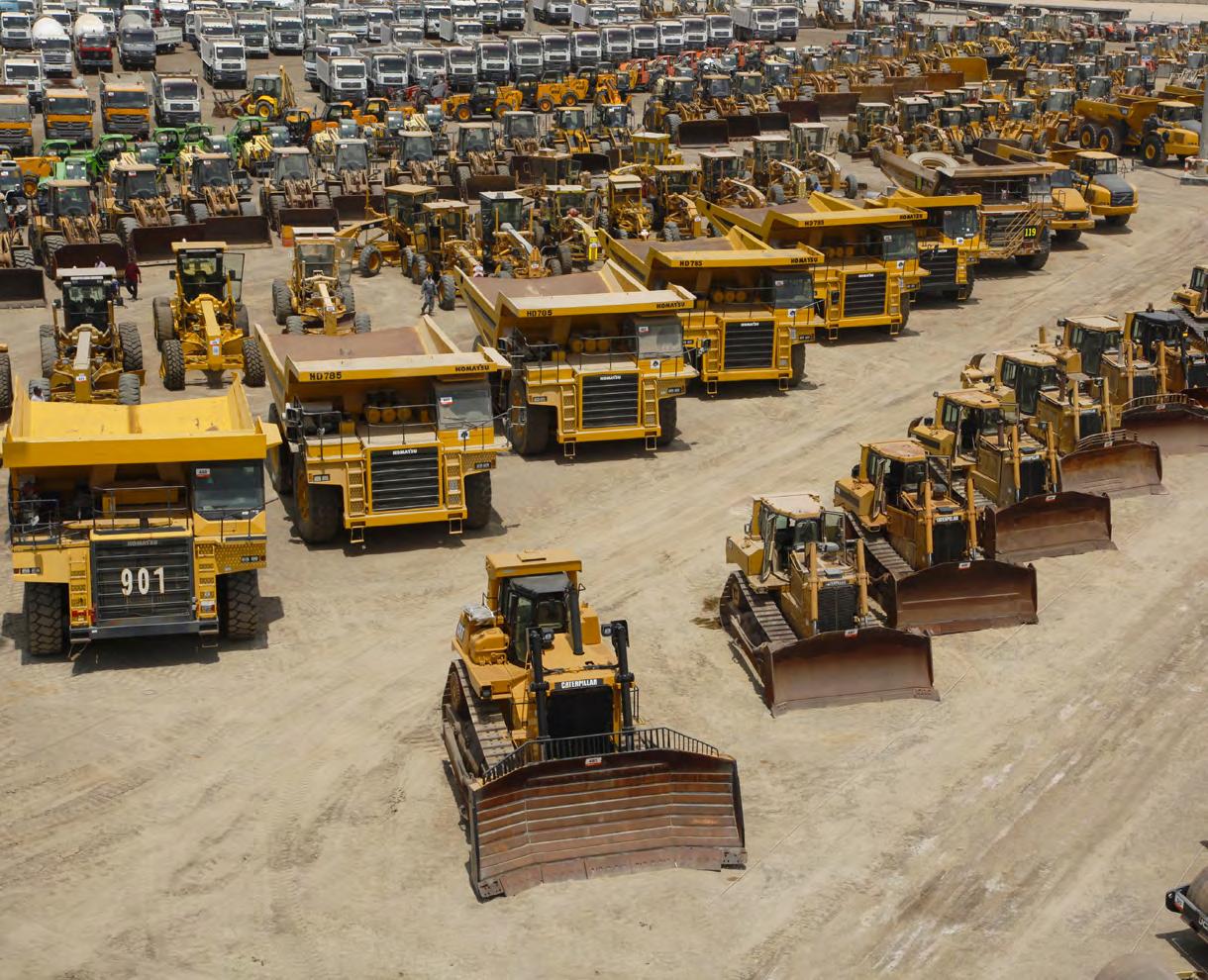
Next selling opportunity near you:
Ritchie Bros. Dubai Auction - June 4 & 5

rbauction.com/sell
Sell with the Best!
At Ritchie Bros. we KNOW machinery
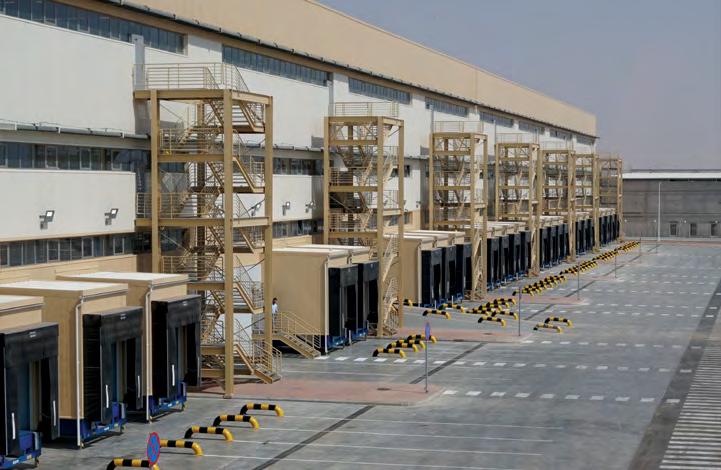
DISCOVER IBLS: INNOVATIVE SOLUTIONS HUB
Offering comprehensive services for designing, procuring, and managing logistics and industrial development projects…
Since 2000, IBLS Industrial & Logistics Consultants has been actively involved in the industrial sector and supply chain operations, undertaking numerous projects in Saudi Arabia, Qatar, and Southern Europe. Focusing on designing industrial buildings, logistics centres, and logistics villages, IBLS has amassed considerable expertise that translates into valuable support for our clients’ investment projects.
IBLS provides comprehensive services encompassing design, construction
management, and project maintenance, structured into distinct stages:
1. Concept Design, Data Collection, and Design Brief Validation (CD)
2. Schematic Design (SD)
3. Detailed Design and IFC Drawings (DD/IFC)
4. Shop Drawings and Construction Stage, including Testing and Commissioning (CON)
5. Completion, Hand-Over, and Project Dossier (COM)
6. Project Management, Construction PM, Commissioning Management, and Facility Maintenance.
The Project Management strategy at IBLS incorporates the Detailed Design and Tender Process, providing commercial and operational benefits through services that ensure:
• Budget Management utilizing the IFC Bill of Quantities (BoQ)
• Time Schedule Control and Management
• Quality Assurance and Control (QA/QC)
• Site Administration and Technical Management.
Competitive Advantage
Success relies on thoroughly understanding the client’s needs, systematically analyzing the current situation, addressing potential future challenges, and integrating the work into the broader context of modern techniques and solutions.
A comprehensive design includes taking responsibility for all installation studies, budgeting, and project licensing, as well as overseeing construction until project delivery and operation by the client.
Key aspects include:
• A single manager assumes responsibility for communicating with the client on technical, financial, and operational matters.
• Implementing a Management Information System to support design administration, communication protocols, and quality assurance.
• Providing deliverables following CSI Masterformat® instructions, including technical specifications, design lists, and measurements (Bill of Quantities BOQ) for the entire project and its construction phases.
Niche Solutions Offered By IBLS
The design process at IBLS is systematic, starting with a Diagnostic Study and Requirement Analysis to determine operational arrangements and building concepts. This phase involves analyzing operational, storage, and production systems, including:
LNME SERVICES 46 | LOGISTICS NEWS ME | APRIL 2024 WWW.CBNME.COM
• Storage management procedures include stock reception, putaway, replenishment, order fulfilment, stock dispatch, and storage technologies.
• Assessment of storage management equipment, including forklifts and racking types, and considering using entirely or semiautomated systems.
Additionally, this phase encompasses analyzing building types and electromechanical systems and defining technical specifications like structural frame analysis, architectural shapes, floor levels, ambient conditions, temperature levels, and fire protection requirements. Once the master plan is finalized to meet logistics activity needs, the architectural facade design is chosen.
Incorporating advanced aesthetic elements and multifunctional features elevates the building’s visual appeal and imparts distinct character. The facade design palette considers factors such as lighting, shading, transparency, textures, reflectance, patterns, innovative technologies, and intelligent facade systems. IBLS suggests tailored or personalized solutions that align with the client’s specifications, aesthetic preferences, and budgetary constraints, ensuring high aesthetic value, durability, and unique design for each project.
Shifting The Curve: Logistics Industry Contemporary technological advancements influence various facets of our daily existence, including lifestyle, professional endeavours, and communication methods. Within the construction sector, these recent innovations not only impact building design and construction processes but also reshape the collaboration dynamics between engineers and clients.
Building Information Modeling (BIM) is a significant advancement in the engineering and construction sector. It entails utilizing a digital model that
integrates various information and parameters concerning the building’s form, structure, and systems. This comprehensive model encompasses precise geometry and pertinent data for supporting design, procurement, fabrication, and construction processes to bring the building to fruition. Following completion, the digital model is a valuable building management and maintenance tool.
IBLS is integrating BIM into numerous projects to enhance the efficiency and excellence of design delivery. BIM offers various advantages, including time and cost savings and reduced construction waste. By generating a digital representation of the forthcoming asset, BIM facilitates coordination, documentation, and bill
of quantities creation and supports the development of VR simulations or digital twins. To optimize this process, it’s essential to consider the intentions and capabilities of all stakeholders involved.
Green Initiatives
IBLS boasts considerable expertise in sustainable design consulting. They collaborate with prominent consulting firms on Green Buildings globally. In partnership with these firms, we provide comprehensive certification services encompassing sustainable design charrettes and consulting, energy modelling and analysis, daylighting modelling and analysis, and fundamental and enhanced commissioning, measurement, and verification.

DISCOVER IBLS: INNOVATIVE SOLUTIONS HUB
LOGISTICS NEWS ME | APRIL 2024 | 47
IOANNIS BERLIS, GCC Business Development Manager, IBLS Industrial & Logistics Consultants
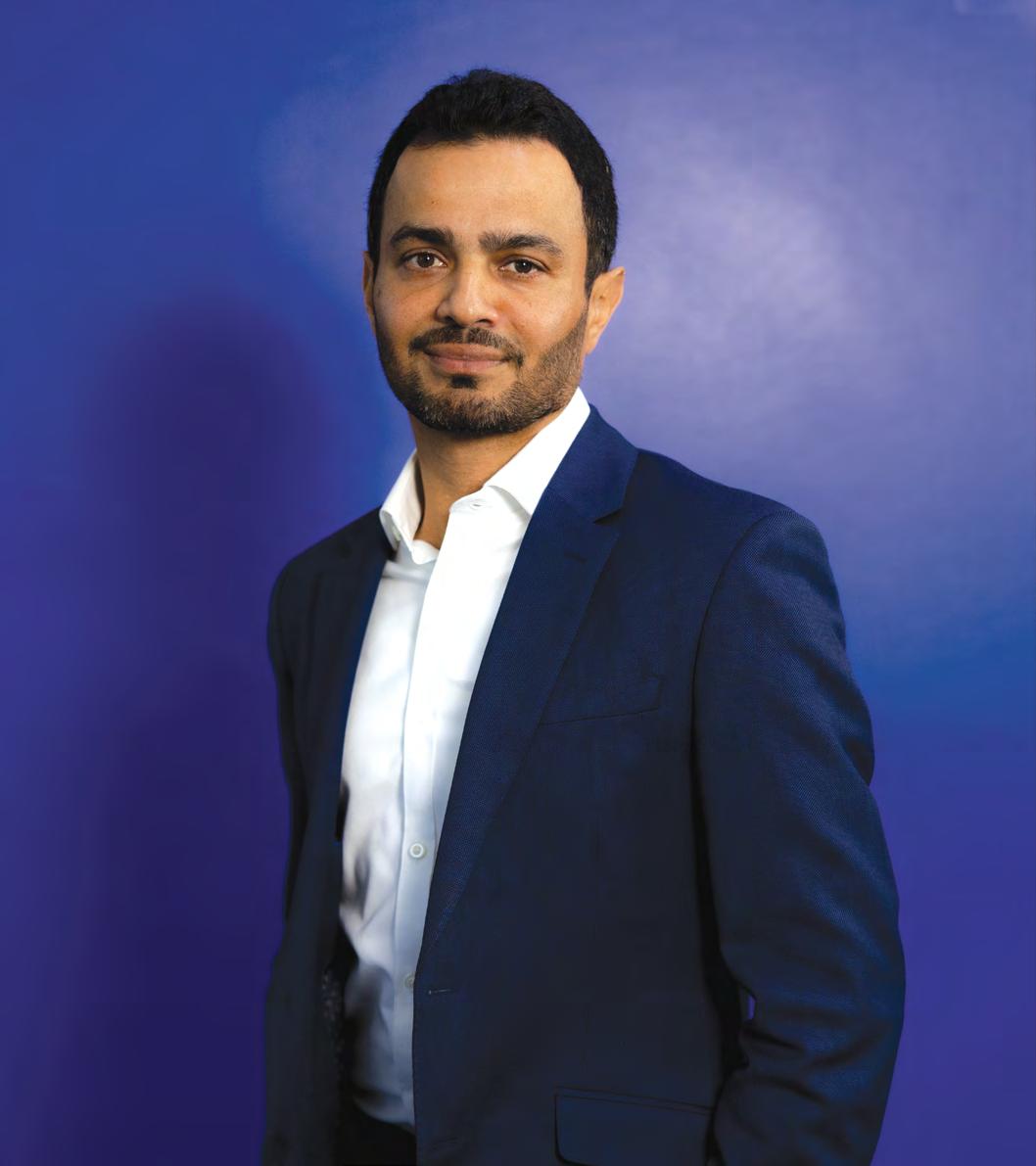
SEALING RIFTS
Amar Rizvi, Chief Strategy Officer at iMile Delivery, speaks to Vibha Mehta on how the company is implementing strategies for last-mile delivery success…
LNME INTERVIEW
48 | LOGISTICS NEWS ME | APRIL 2024 WWW.CBNME.COM
Amar Rizvi, CSO at iMile Delivery, brings a wealth of experience from investment banking and strategic advisory roles. With over 20 years in global investment banking, including positions at Citi and Bank of America, he has advised clients across Europe, the Middle East, and Africa. At iMile Delivery, he leads strategic initiatives to drive innovation and growth, leveraging his expertise in mergers and acquisitions, strategy development, and capital optimization. His commitment to excellence and strategic planning makes him a valuable asset to iMile, positioning the company for industry leadership and success.
iMile Delivery emerged from Rita Huang’s entrepreneurial vision and desire to address a gap in the Middle Eastern delivery experience, particularly in Dubai. Founded in 2017, Rita recognized the opportunity to improve delivery services based on her experiences in different parts of the world. Operating initially from a small villa in Jumeirah, Rita was hands-on, handling deliveries and customer inquiries herself.
“E-commerce industry is a booming sector,” says Amar Rizvi, Chief Strategy Officer at iMile Delivery. He continues, “The pandemic had a significant role to play in that. But all the
pandemic did was expedite and accelerate the boom that was already taking place. And this region is no different.” Due to the region’s macroeconomic growth and booming e-commerce sector, delivery companies like iMile had a vital role to play. While the Middle East remains their cornerstone, they have expanded into new markets, such as Latin America and ventured into additional regions last year. UAE and Saudi Arabia are their primary markets, and they aim to grow alongside the market’s expansion.
Expansion is crucial across all industries, and one has noticed firsthand that digital transformation is pivotal within this realm. According to Amar, technology is omnipresent nowadays; it’s not exclusive to certain
companies or sectors, and they are no exception to that. However, when people consider technology in the delivery or last-mile space, they often think of autonomous vehicles, drones, and robots. “Those innovations are fantastic. And their time will come. But fundamental technology is more important than anything else for a company like ours,” explains Amar. Ensuring the successful handling of hundreds of thousands or even millions of global deliveries each day requires a robust, scalable, and adaptable tech platform. Without it, managing such high volumes, tracking deliveries, and meeting client commitments would be impossible. iMile’s technology foundation is paramount, built entirely in-house from A to Z. This
approach is one of their core strengths, supported by over 200 R&D engineers dedicated to its development and maintenance.
Amar emphasizes, “In addition to our core platform, we have also integrated other technologies such as geofencing and route optimization. These tools are crucial for ensuring costefficiency and upholding the high service and delivery standards we aim for. Technology remains at the forefront of our operations in every aspect.” Additionally, the company acknowledges the potential of emerging technologies like electric vehicles and drones but emphasizes that its primary focus remains on ensuring the scalability and adaptability of its platform. This commitment

SEALING RIFTS
LOGISTICS NEWS ME | APRIL 2024 | 49
was tested during the COVID-19 pandemic, where unforeseen surges in volumes and supply chain disruptions occurred.
Despite these challenges, the platform successfully managed the increased demands without encountering any major issues. During periods of unexpected high volumes and supply chain disruptions, the platform had to effectively manage the increased demands despite not being entirely accurately forecasted. Amar shares, “Touchwood, we could stay through that period without any hiccups.”
However, there’s an ongoing contemplation regarding whether innovation inevitably leads to disruption. In this regard, Amar believes that the two are closely intertwined, with innovation often paving the way for disruption. Amar notes that the company was established with a vision of improvement, recognizing unique challenges in the region that may not be present in other markets. In the region, there’s a need for a more formalized address system, which is currently lacking in many areas. This poses specific challenges, especially for delivery services, as the lack of standardized addresses makes it difficult for delivery personnel to locate recipients. In addition, the prevalence of cash-on-delivery transactions further complicates the process. While technology exists to address these issues, cultural preferences for cash payments present barriers to adoption.
Yet, innovative solutions have the potential to disrupt the market and improve the customer experience. Amar continues, “Despite us going through the pandemic, this market
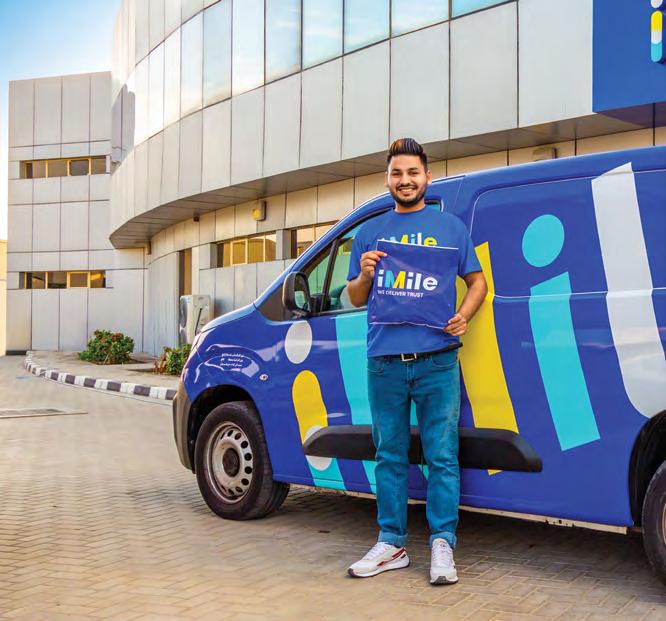
is still 30 to 50% cash on delivery. So, if the pandemic doesn’t end, it will go away eventually, but it’s not going away anytime soon. As I said, it’s not due to a lack of technology access. It’s cultural, and those things take time.”
Moving forward, certain psychological factors will surface in the last-mile industry. The prevalent shopping behaviour in the region entails a preference for cash-on-delivery, which iMile Delivery accommodates as part of its core strengths. Additionally, in the realm of online shopping, the ability to return or exchange items is crucial for both merchants and customers. While this aspect may not directly involve iMile as a last-mile delivery company, facilitating returns and exchanges by coordinating delivery partners
is essential to meet customer expectations and enhance the overall service offering. “The evolving customer expectations in online shopping, where the previously acceptable delivery timeframe of a week has now reduced to three or four days.
Consequently, there is a growing demand for same-day or next-day delivery services, necessitating rapid adjustments and optimizations within the supply chain to meet these heightened expectations.,” says Amar. Within the supply chain, last-mile delivery companies must adapt to meet the increasing demand for same-day or next-day delivery, particularly in urbanized and high-volume areas. While this may not be feasible everywhere, companies like ours are committed to implementing
LNME INTERVIEW
50 | LOGISTICS NEWS ME | APRIL 2024 WWW.CBNME.COM
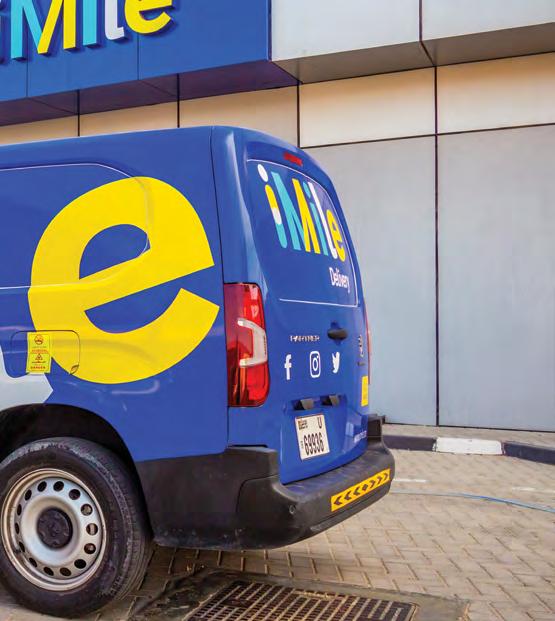
such services within the constraints of practicality and feasibility.
Sustainability has become of the utmost importance, making it a significant trend.
ESG (Environmental, Social,
and Governance) initiatives are a top priority for them. Recently, during their annual meeting of senior managers, ESG was a key topic of discussion, emphasizing the commitment to social responsibility. This commitment originates from the Founder, Rita, and is integral to their agenda. As a last-mile delivery company, iMile recognizes the importance of ESG not only for themselves but also for the countries where they operate. Amar emphasizes the significance of sustainability initiatives, especially considering recent events like the COP summit hosted in the UAE. “This region holds immense importance for us, particularly in markets like Saudi Arabia, with initiatives such as Vision 2030 prioritizing
sustainability. While we are committed to various measures and have already implemented some, we recognize the need for a phased approach due to our evolving nature as a young and growing company,” he shares.
Furthermore, one area of focus for them has been recycling, particularly cardboard boxes, which are prevalent in the last-mile logistics industry. “We prioritize recycling these materials to reduce waste. As well, we are transitioning towards biodegradable packaging for pouches, recognizing the importance of environmental sustainability,” highlights Amar. Another ESG initiative they have undertaken is the shift towards electrifying the fleet, although they have approached this transition thoughtfully, understanding that it’s not feasible to switch to electric vehicles overnight. “We are moving towards electrification of our fleet, but it’s essential to have infrastructure in place to support EVs in the markets. We have started this transition selectively, and it’s a key focus for us.
Sustainability remains absolutely on our agenda,” concludes Amar.
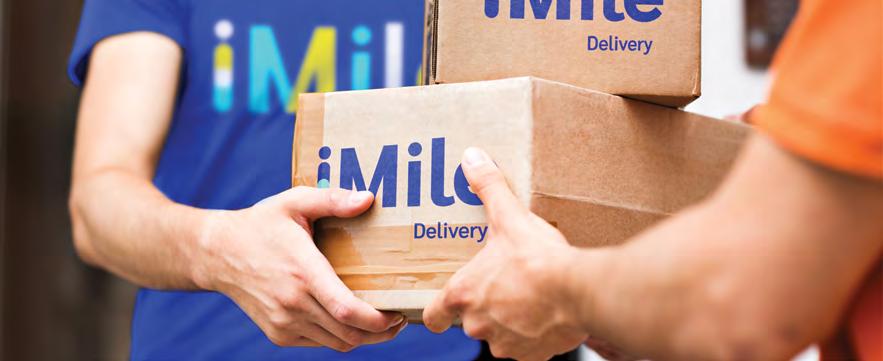
SEALING RIFTS
LOGISTICS NEWS ME | APRIL 2024 | 51
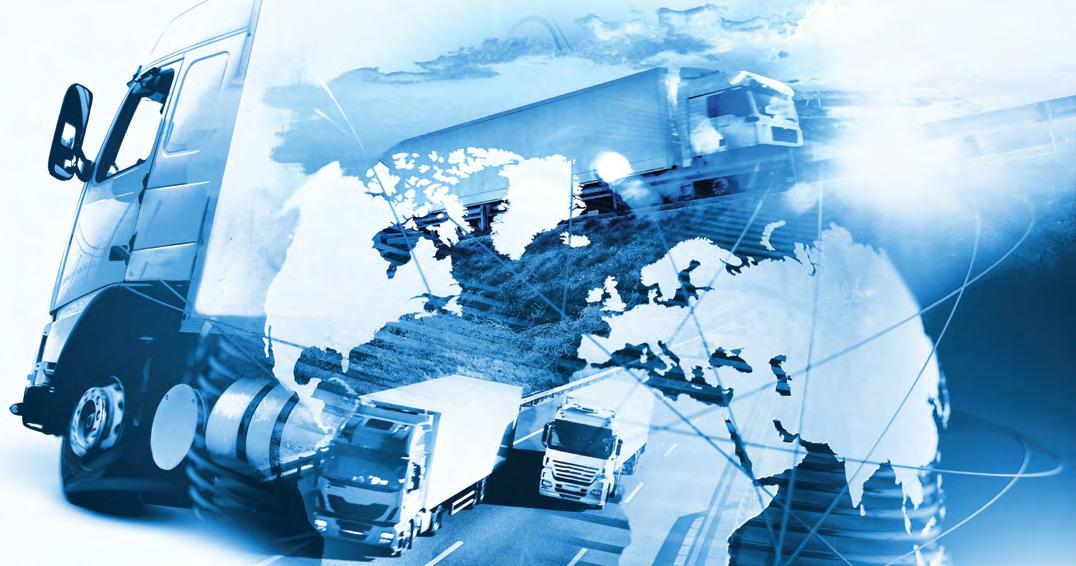
DECODING FOOD TRADE LOGISTICS
Suresh Vaidhyanathan, CEO of Abu Dhabi Food Hub, deciphers into food trade logistics
The Abu Dhabi Food Hub aims to enhance food trade and logistics, capitalizing on the UAE’s global connectivity. It’s a digitally integrated ecosystem consolidating various food categories strategically. This hub will draw producers, wholesalers, retailers, and other industry stakeholders, enriching consumer food diversity and quality. Crucially, it supports the nation’s
food security objectives by providing a structured entry point for local producers into the market. The project is a partnership between the Ghassan Aboud Group and AD Ports Group and is being established in KEZAD, one of the region’s foremost economic zones. “As a unique public-private partnership model, we leverage our mutual strengths to deliver a game-changing market,” says Suresh Vaidhyanathan, CEO of Abu Dhabi Food Hub.
LNME SUPPLY CHAIN
52 | LOGISTICS NEWS ME | APRIL 2024 WWW.CBNME.COM
Food Logistics Challenges
The primary issue in the food sector is wastage. According to the World Food Programme (WFP), one-third of food produced for human consumption is lost or wasted, totalling 1.3 billion tonnes and valued at US$1 trillion. The World Health Organization (WHO) estimates that over 800 million people suffer from food insecurity. Fragmented supply chains and limited technology adoption further compound the problem. Additionally, frequent shifts in customer demand require quick responses.
The Abu Dhabi Food Hub strives to enhance transparency across the food supply chain by promoting collaborations and engaging all stakeholders. Suresh adds, “We will strive to minimise food wastage and improve service provider reliability. The hub increases sourcing options and enables better market and customer access.”
Ensuring quality and freshness remains paramount, especially for perishable goods. Leveraging its infrastructure, which prioritizes maintaining the integrity of the cold chain from start to finish, the food hub can provide significant value to clients in this sector.
Unique Offerings
Positioned strategically between Dubai and Abu Dhabi and close to significant import and export points, the hub is a convenient one-stop destination. Its unmatched connectivity via sea, air, and land facilitates easy access to export markets, enabling traders to serve local and regional markets effectively.
“Being able to find all categories of food products in a site location, with all support services provided on demand,
be it local or global logistics, value-added services offers a distinctive advantage for our clients,” shares Suresh. The Abu Dhabi Food Hub will serve as a comprehensive solution for the wholesale food trade sector, aligning with the UAE’s food security goals. It will adhere to global health, hygiene, food safety, and sustainability standards.
What’s Trending?
Key trends in the food supply chain promote sustainability, including reducing transportation emissions, ensuring cold chain integrity, encouraging local production, and more. The rising adoption of technology
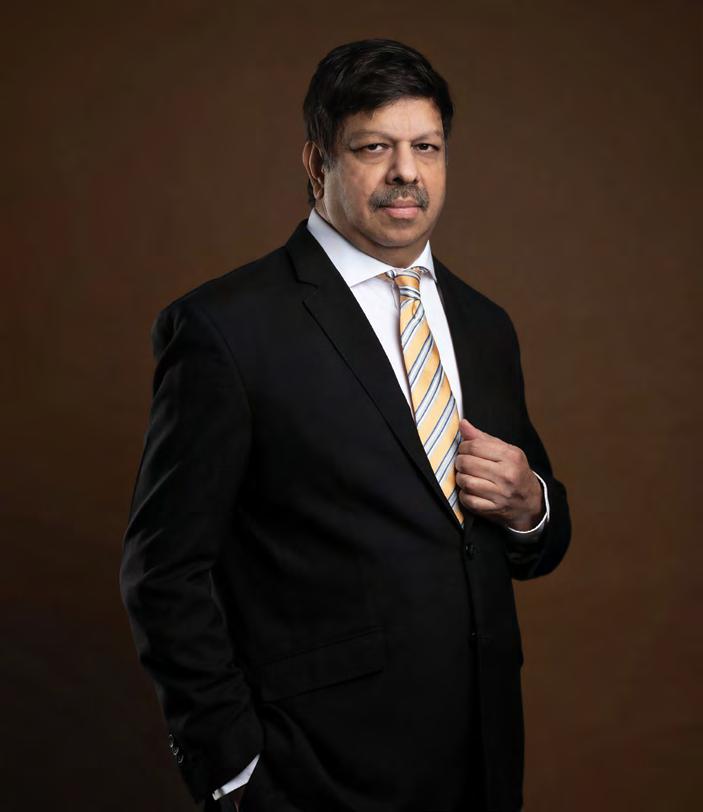 SURESH VAIDHYANATHAN, CEO of Abu Dhabi Food Hub
SURESH VAIDHYANATHAN, CEO of Abu Dhabi Food Hub
CLOSING THE GAPS
LOGISTICS NEWS ME | APRIL 2024 | 53
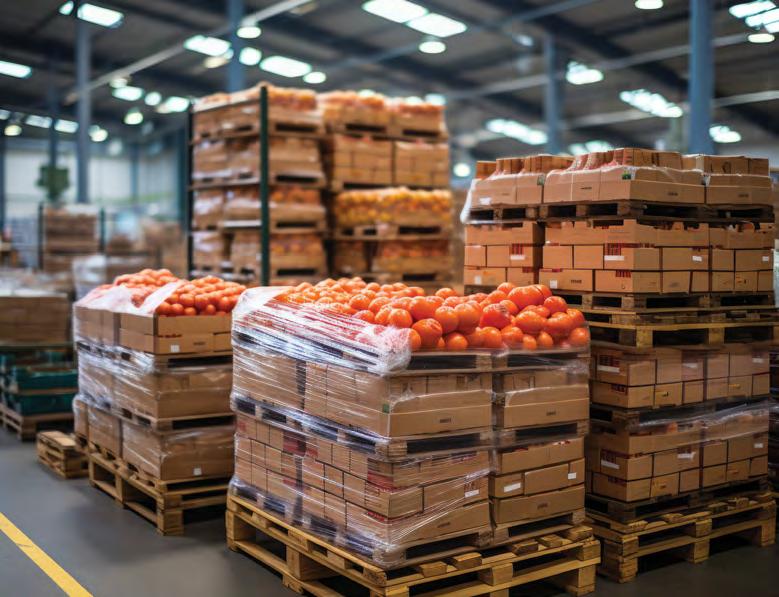
in supply chains leads to improved traceability and better commercial outcomes for supply chain participants. Additionally, trends such as the growth of e-commerce fulfilment and direct-to-consumer models are emerging, along with a heightened focus on supply chain efficiency to manage last-mile costs effectively.
Innovative Initiatives
“Innovation is at the heart of our business model – flowing through right from infrastructure development, supply chain efficiencies, ensuring product quality and availability, digital ecosystem, and others,” highlights Suresh. Initiatives are planned to shorten lead times in a market environment, enhance product diversity from various origins, improve quality and freshness and reduce overall environmental impact.
Sustainability & Technology
The core of Abu Dhabi Food Hub’s purpose and strategy is sustainability. The hub’s objectives include reducing food waste, optimizing utility consumption, promoting recycling, consolidating logistics, improving cold chain efficiency, advocating for healthy eating, and more. Suresh emphasizes that “our efforts align fully with the UAE’s guidelines on sustainability and the food security agenda.”
Moreover, the hub aims to distinguish itself as a distinctive food ecosystem by leveraging technology to improve client interactions and streamline business processes. Its digital systems facilitate seamless communication among stakeholders, enhance operational speed and efficiency, and improve customer service. Additionally, technology plays a crucial role in managing internal operations, including infrastructure, utilities, and value-added services.
Foresight
“Our primary objective is to create a substantial positive outcome for our clients within the hub. We are actively forging strategic partnerships to enhance the ecosystem across various domains and anticipate reaping the rewards of the effort invested in the project over recent years,” concludes Suresh. The Abu Dhabi Food Hub is poised to raise the bar for regional food systems.
LNME SUPPLY CHAIN 54 | LOGISTICS NEWS ME | APRIL 2024 WWW.CBNME.COM

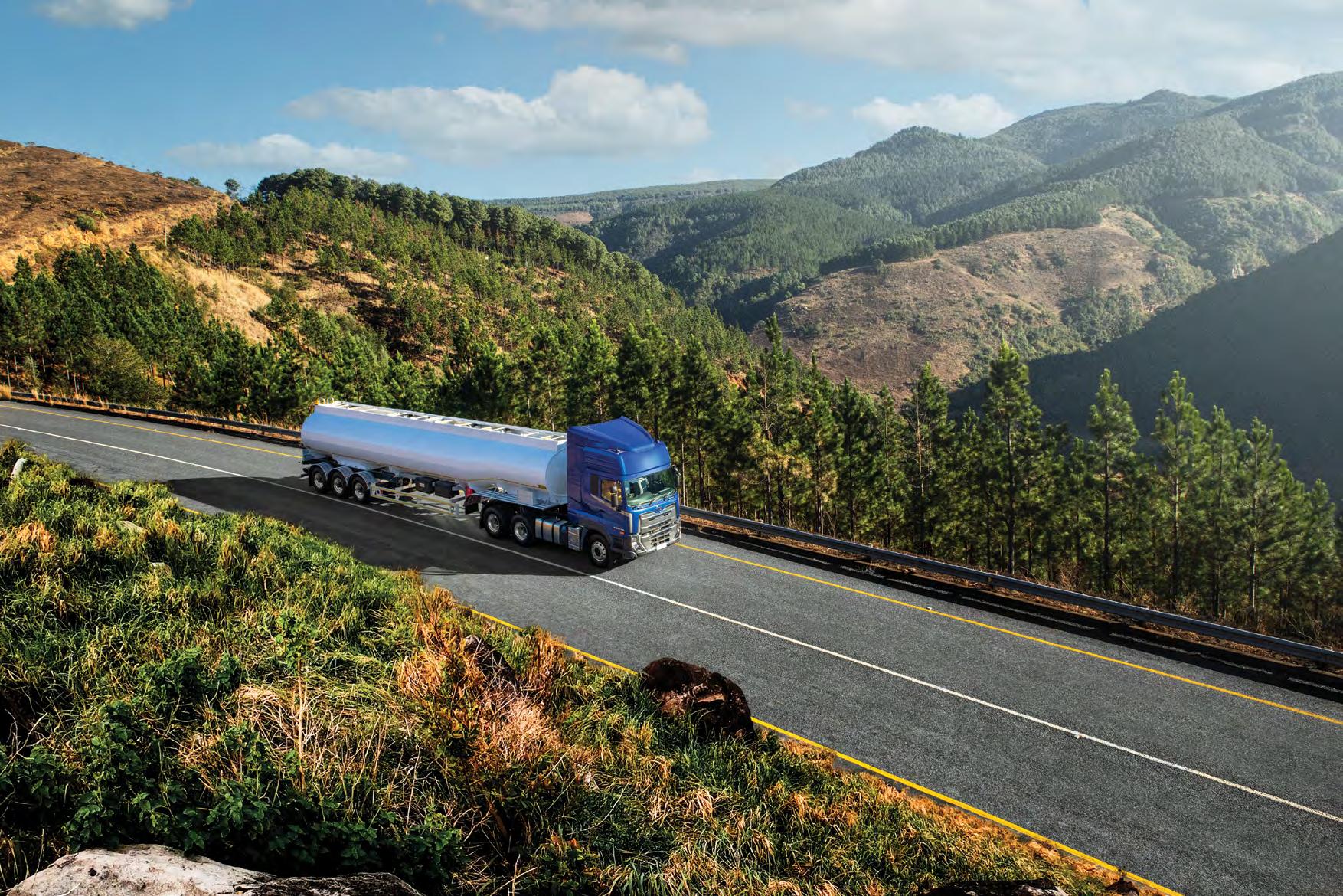



Drive the new way.
New IVECO T-Way: high productivity and safety on off-road terrains
With a complete line-up of AWD and PWD versions and the the 16-speed HI-TRONIX automated gearbox, the IVECO T-Way features a host of functionalities such as Rocking Mode, Off-road Mode, Creeping Mode and 4 reverse gears to tackle with ease the toughest off-road conditions. The new architecture of the EBS system, combined with disc brakes on all wheels, greatly improves the vehicle’s performance and the driver’s safety in the most demanding applications.
New IVECO S-Way: high technology and efficiency for on-road missions
The new IVECO S-Way, with a completely redesigned and reinforced cab, offers a wide choice of Euro III/V diesel engines, a delivering class-leading power from 360 HP to 560 HP Euro III / 570 HP Euro V and superior fuel-saving devices, such as anti-idling feature, Ecoswitch, Ecoroll and Smart Alternator, 12-speed HI-TRONIX automated transmission with the most advanced technology in its category, electronic clutch and best-in-class torque-to-weight ratio.




































































































 NIRANJAN GIDWANI, Consultant Director & Board Member SSGMUAE
NIRANJAN GIDWANI, Consultant Director & Board Member SSGMUAE




 ACHRAF ELLILI, CEO of Flow Progressive Logistics
ACHRAF ELLILI, CEO of Flow Progressive Logistics






















 ANGAD SINGH, Global Director of Innovation at Aramex
ANGAD SINGH, Global Director of Innovation at Aramex












 SURESH VAIDHYANATHAN, CEO of Abu Dhabi Food Hub
SURESH VAIDHYANATHAN, CEO of Abu Dhabi Food Hub





